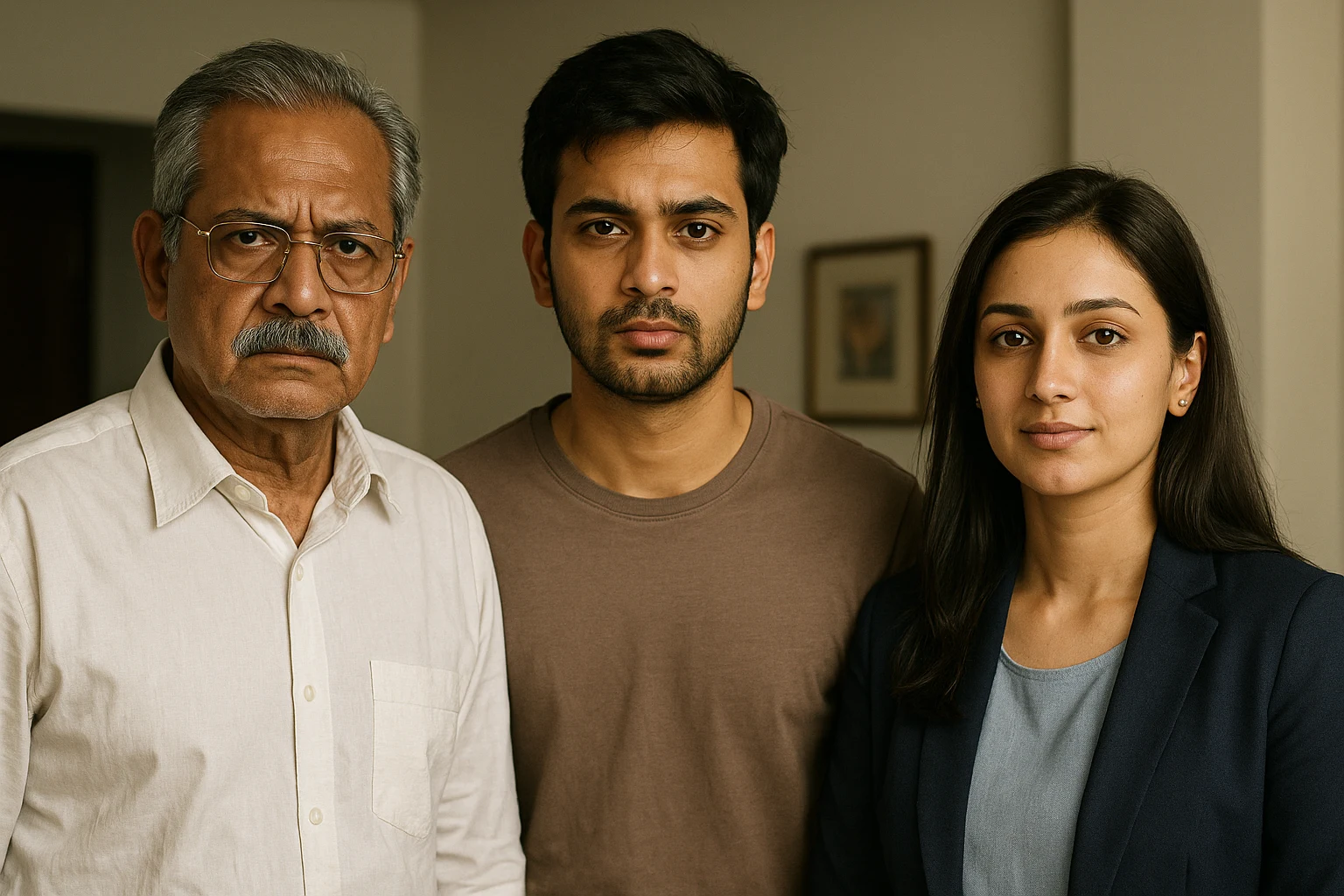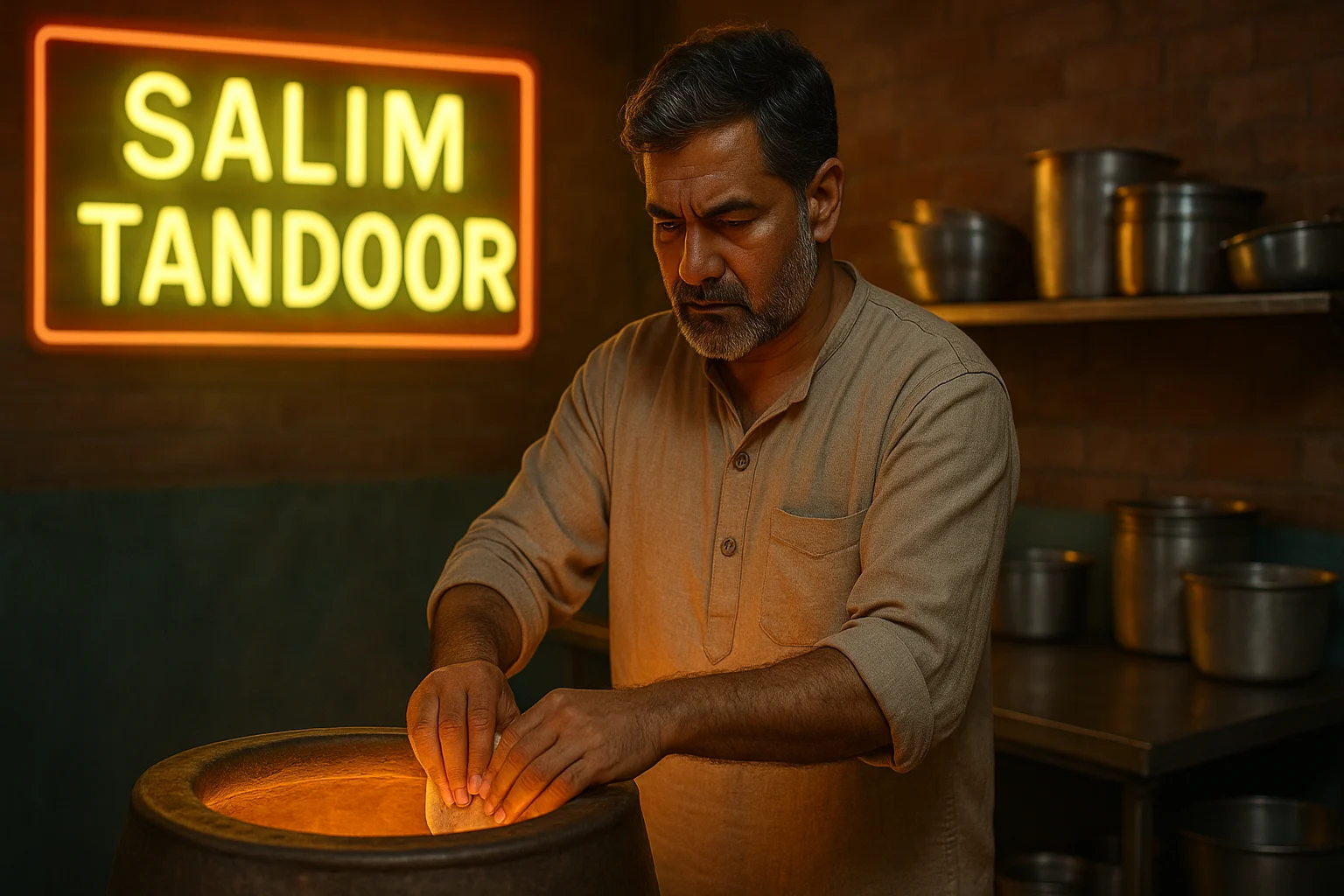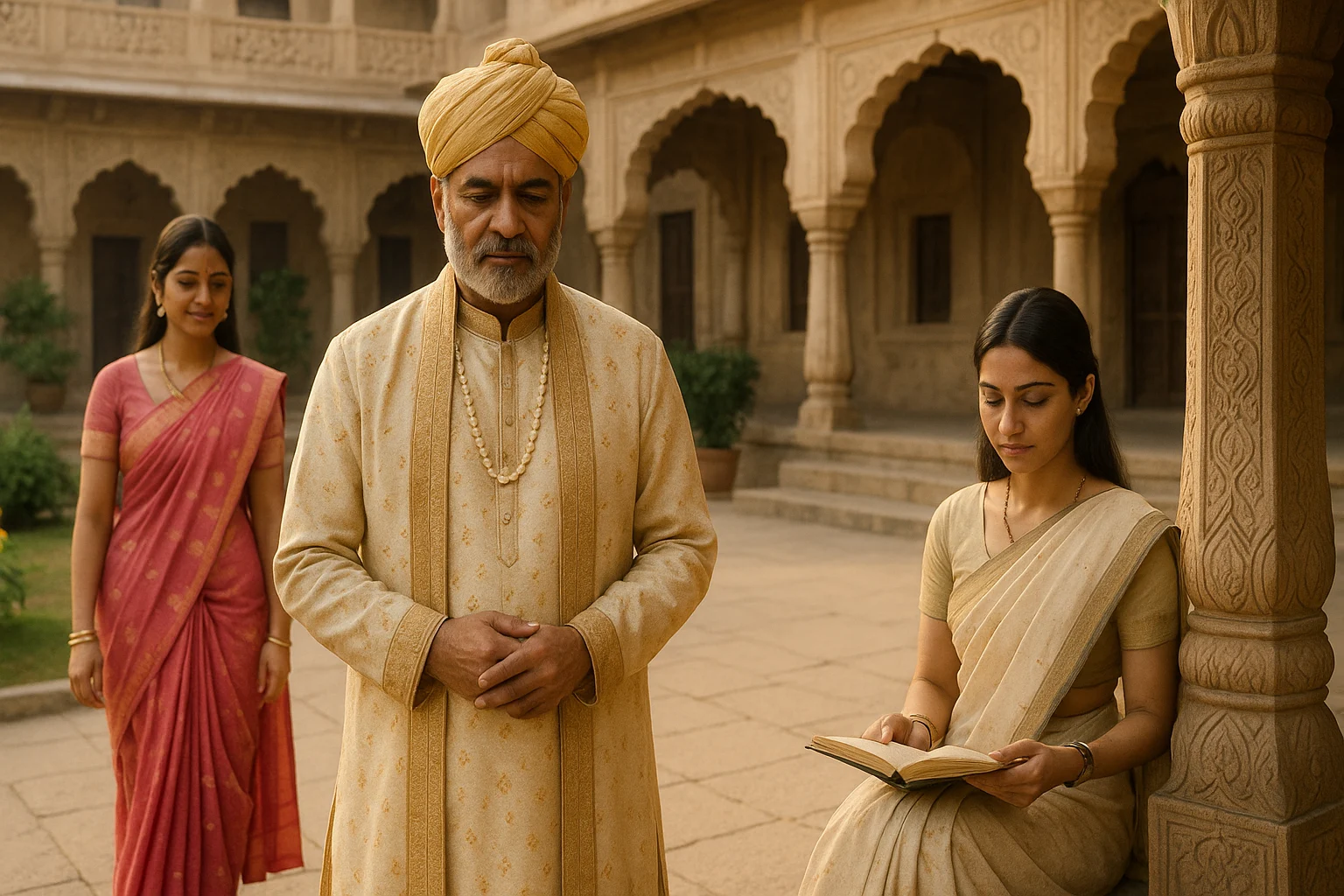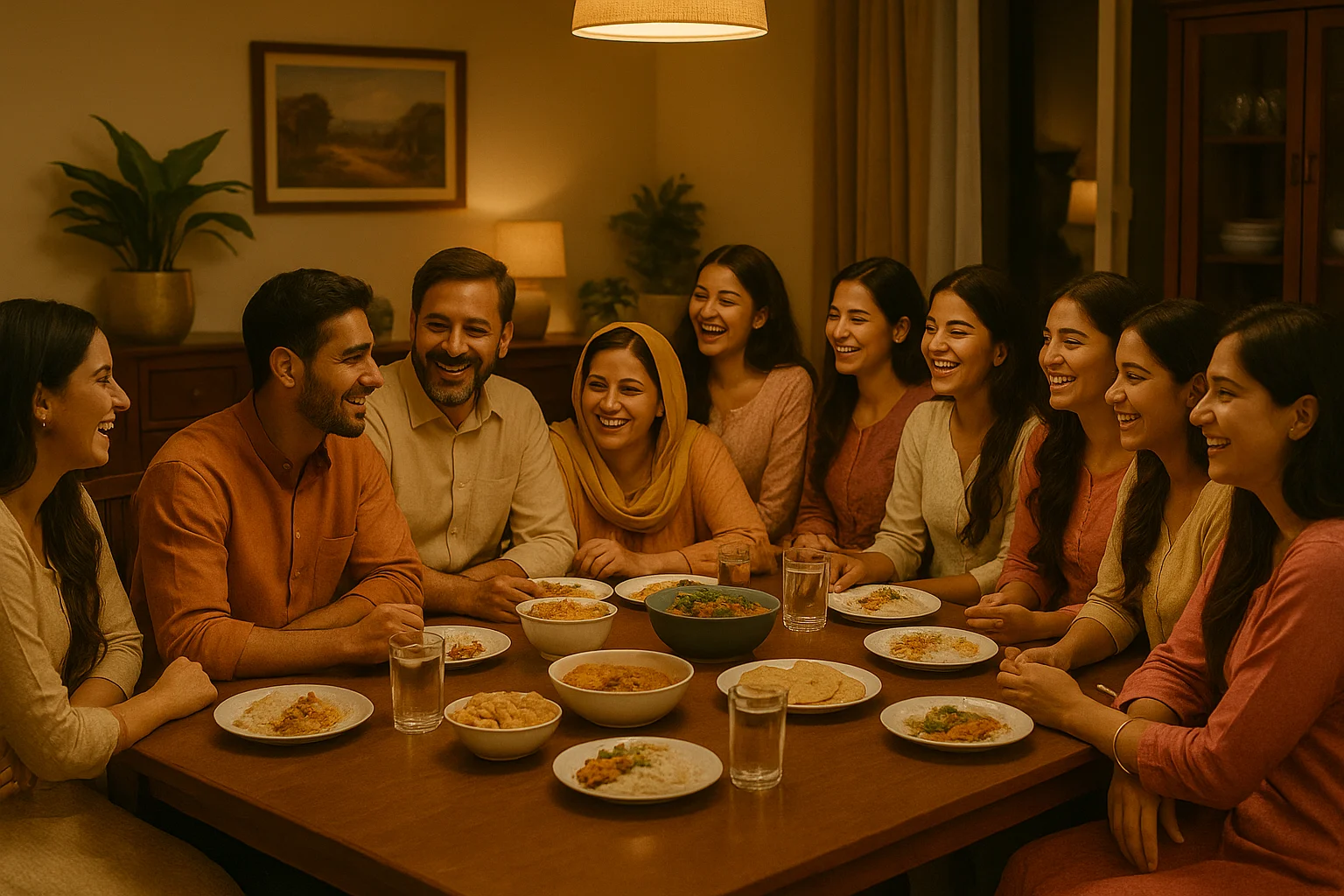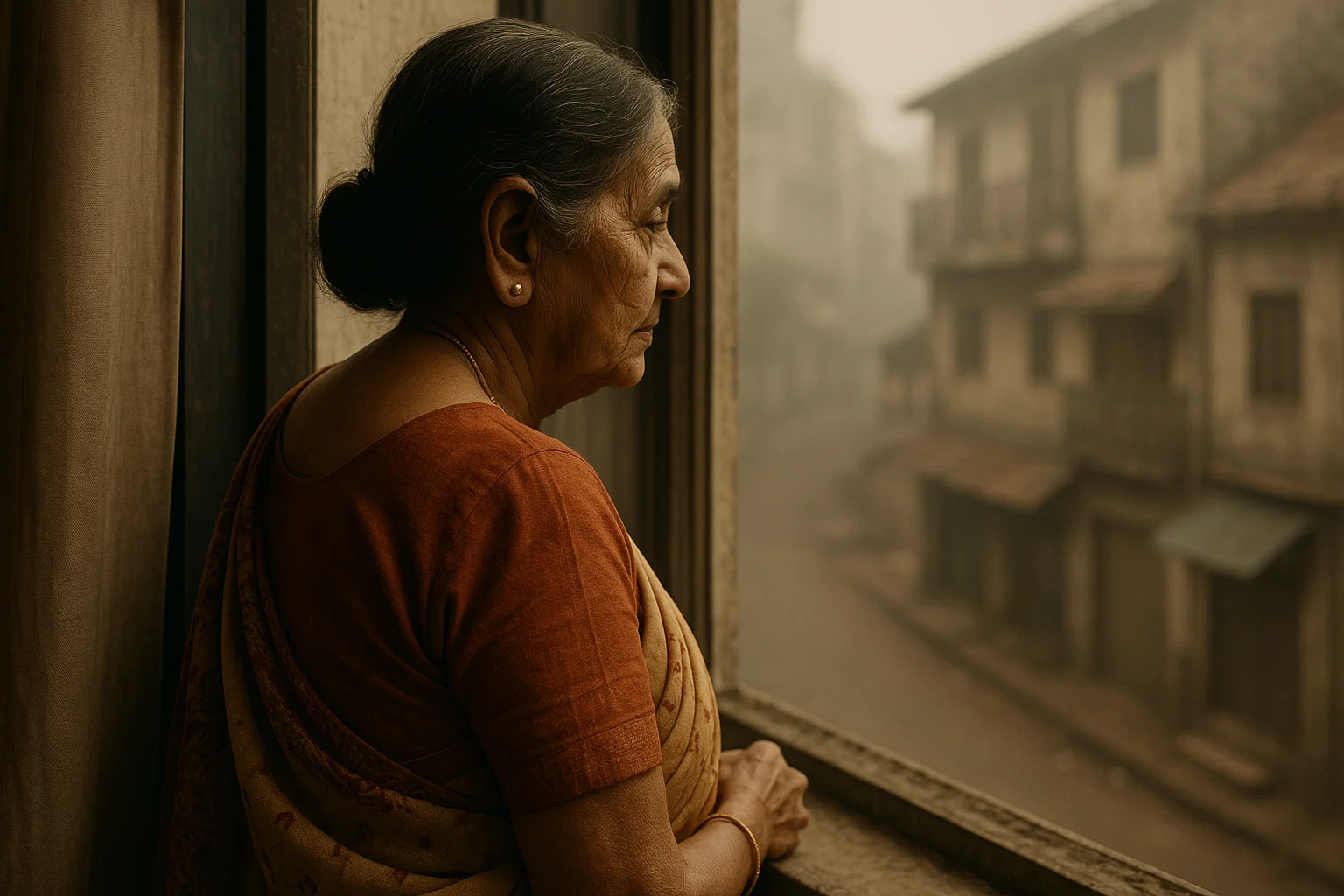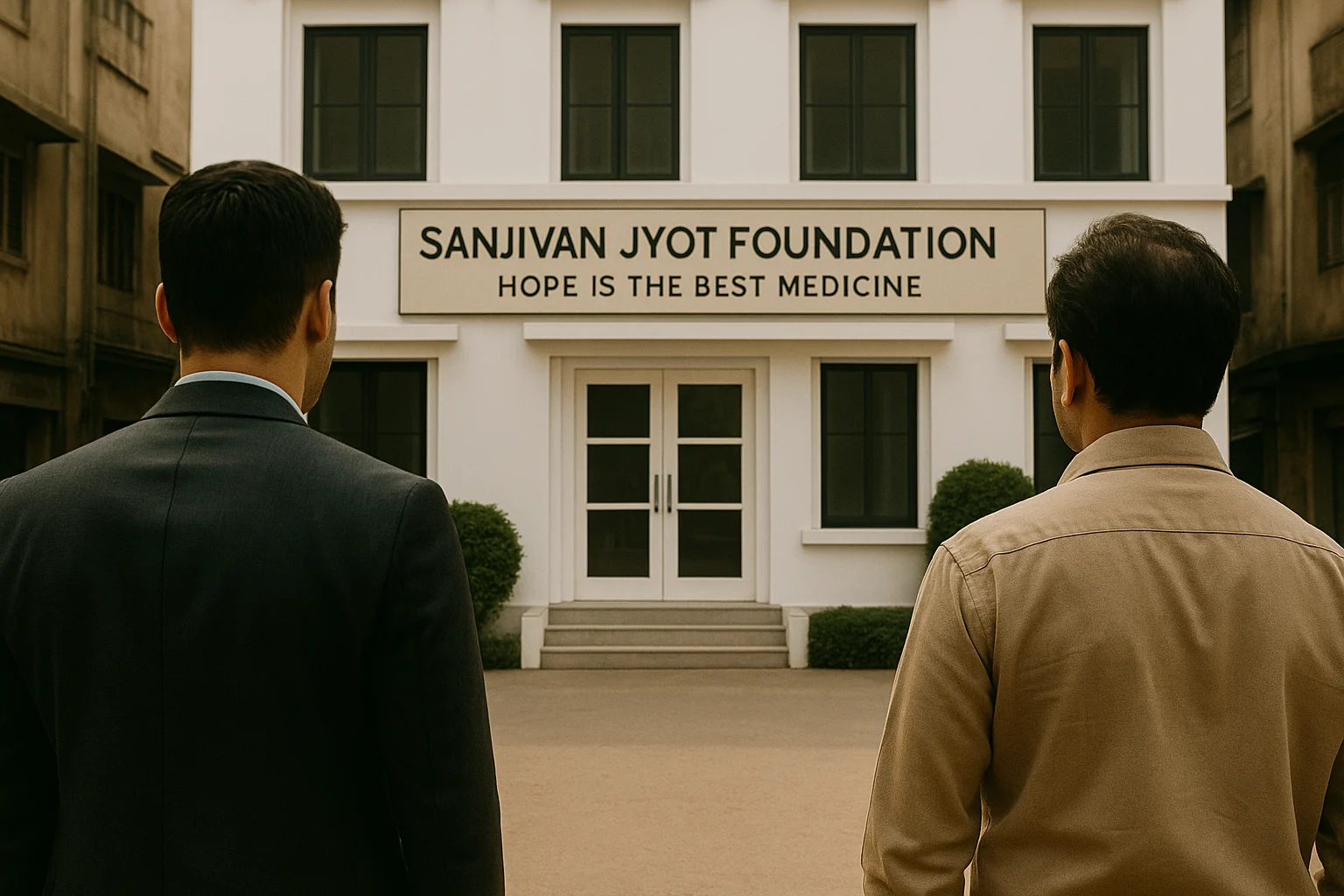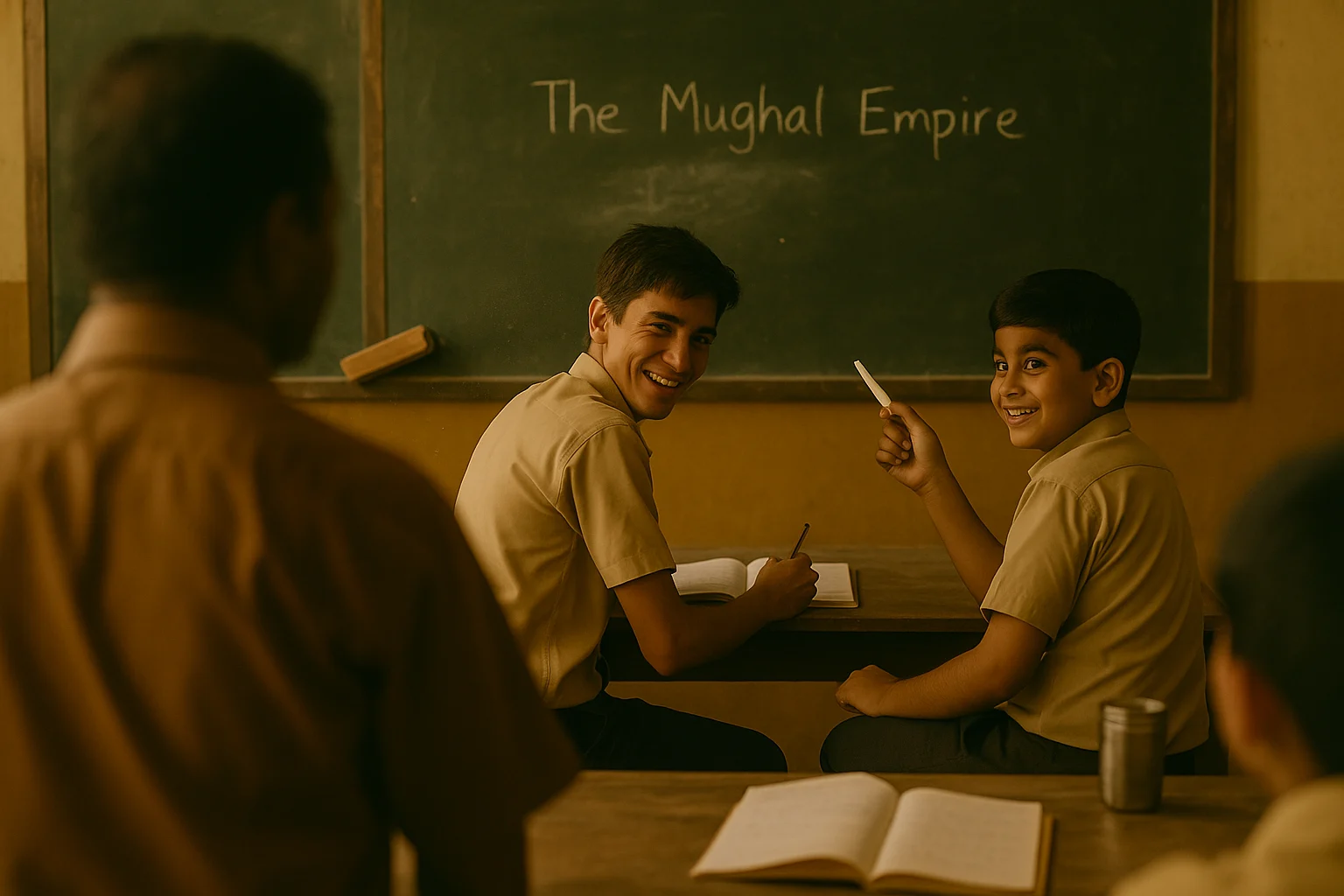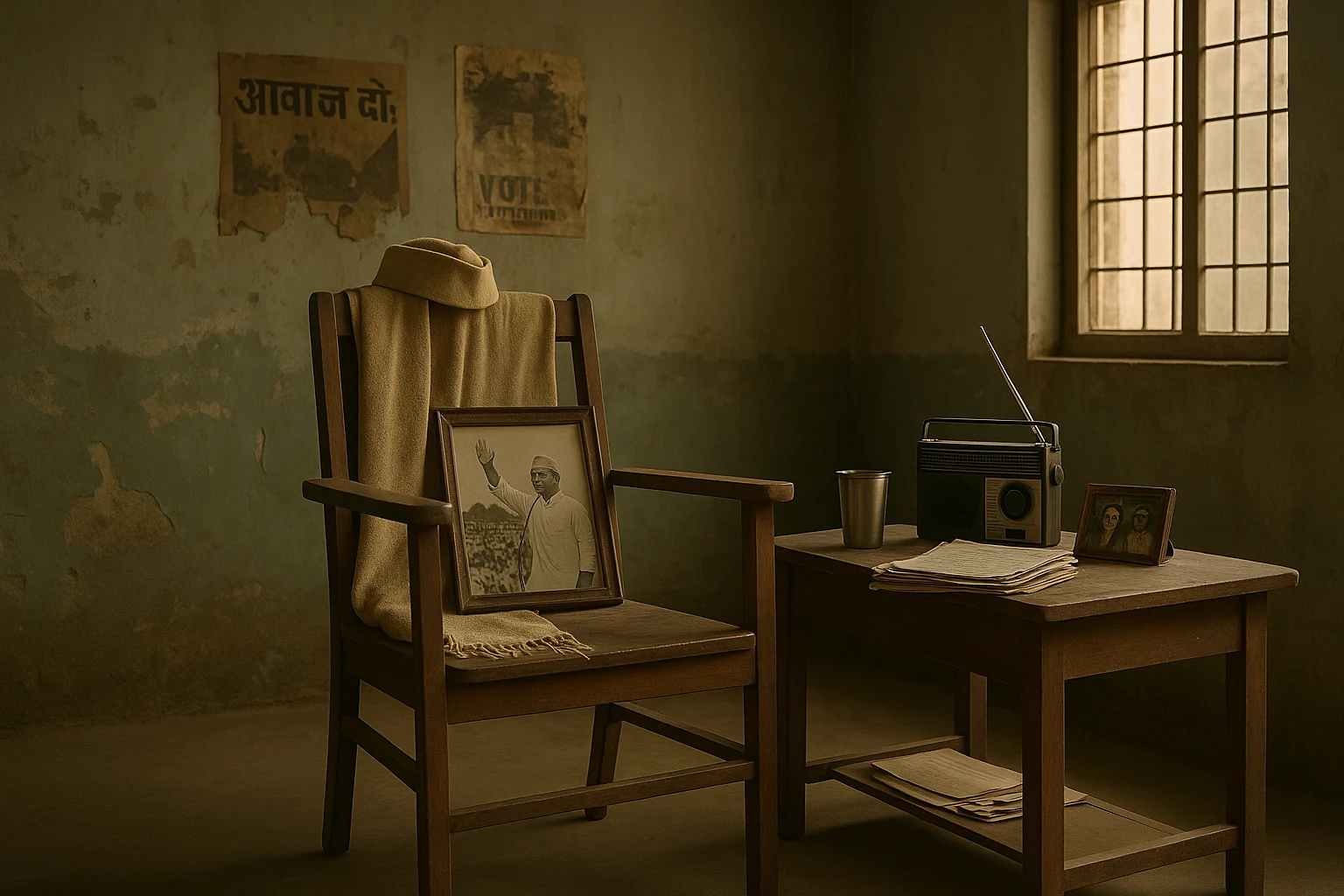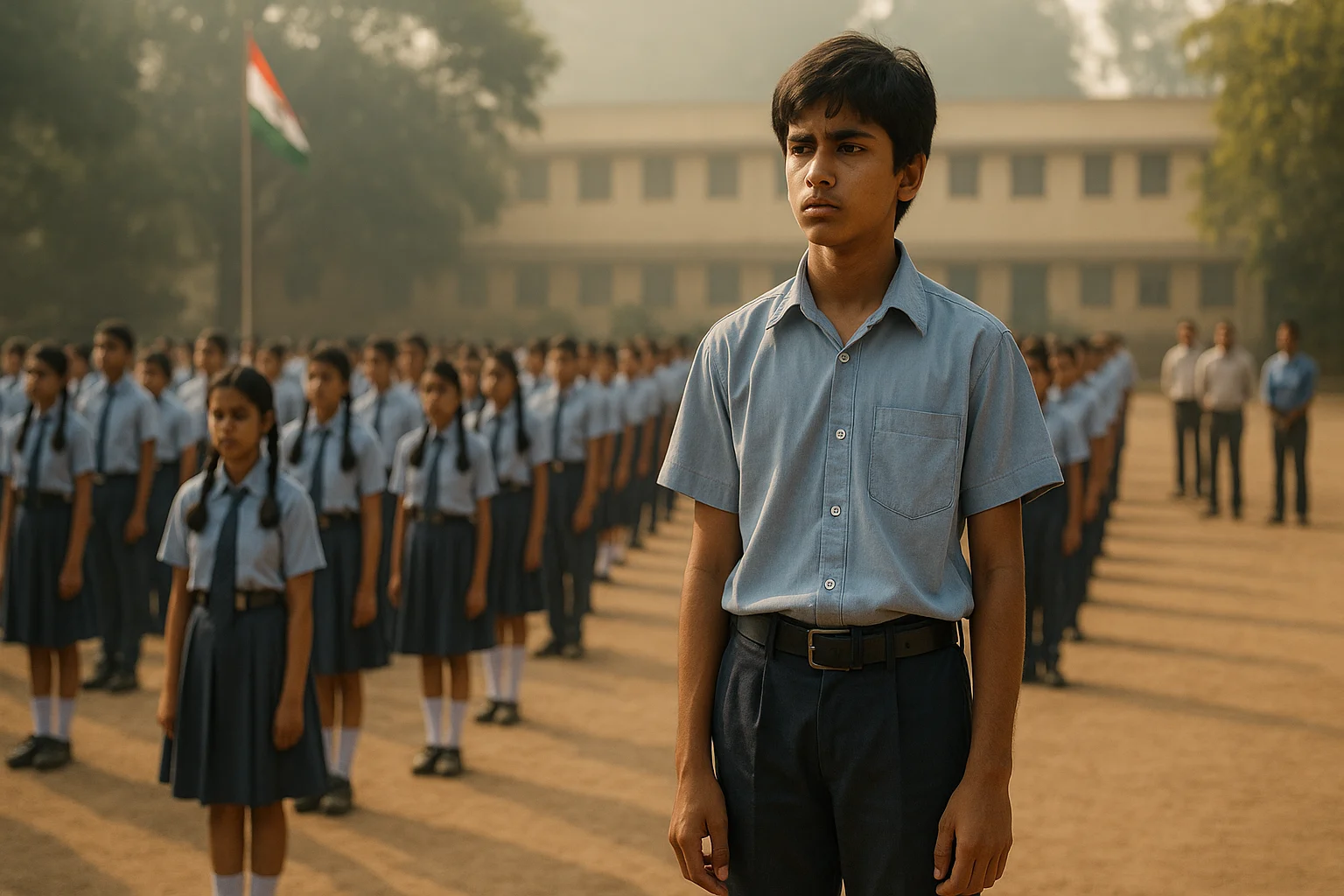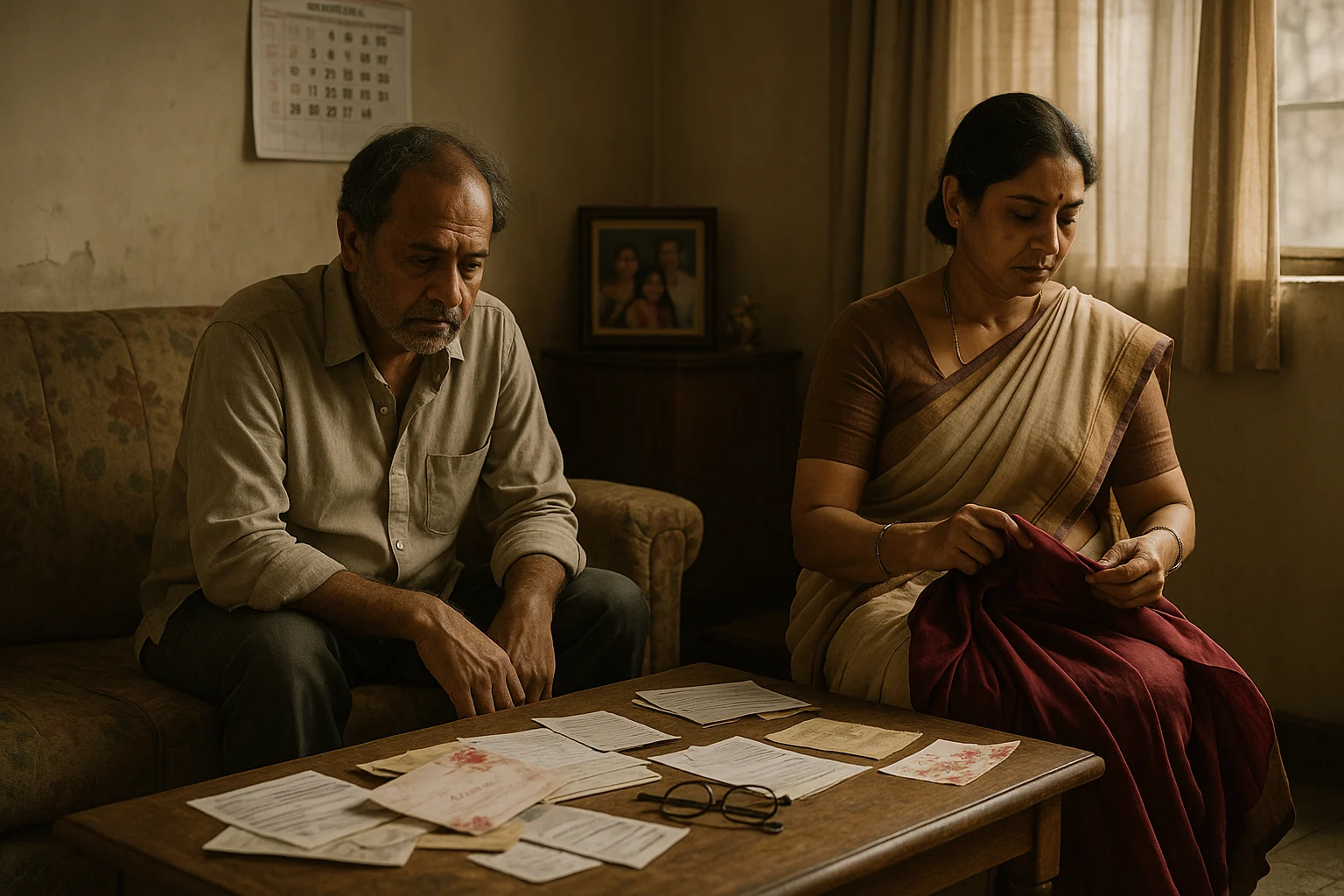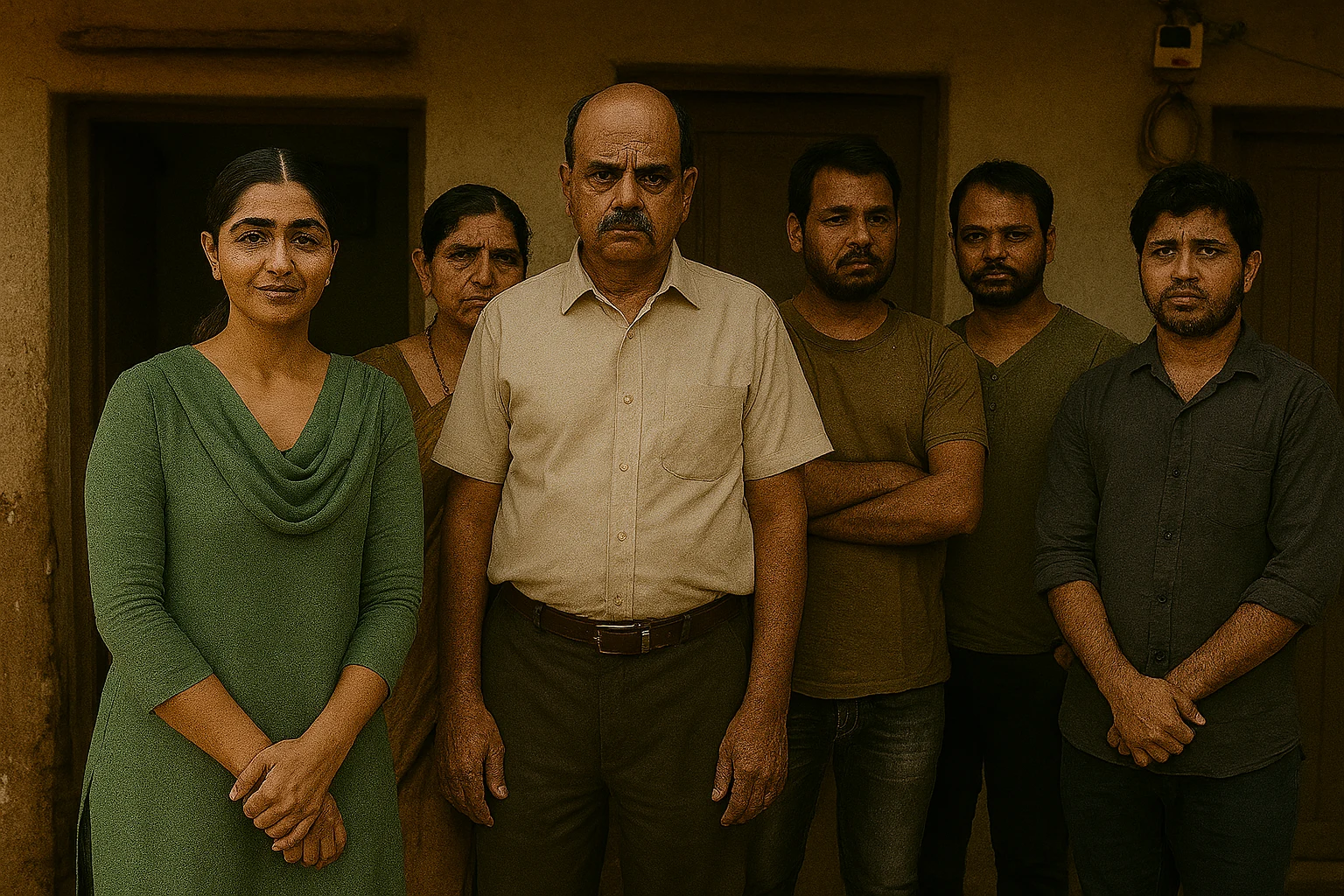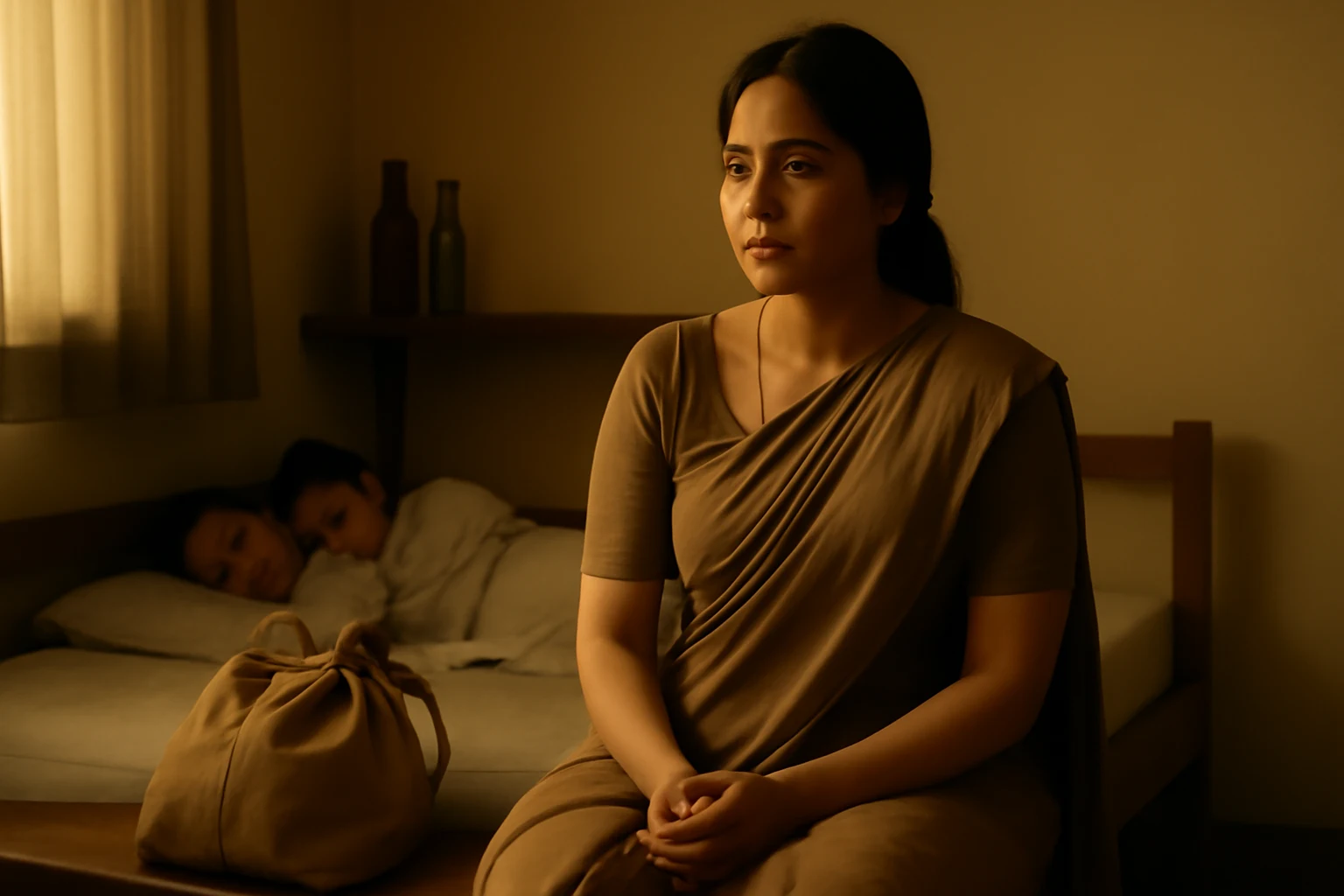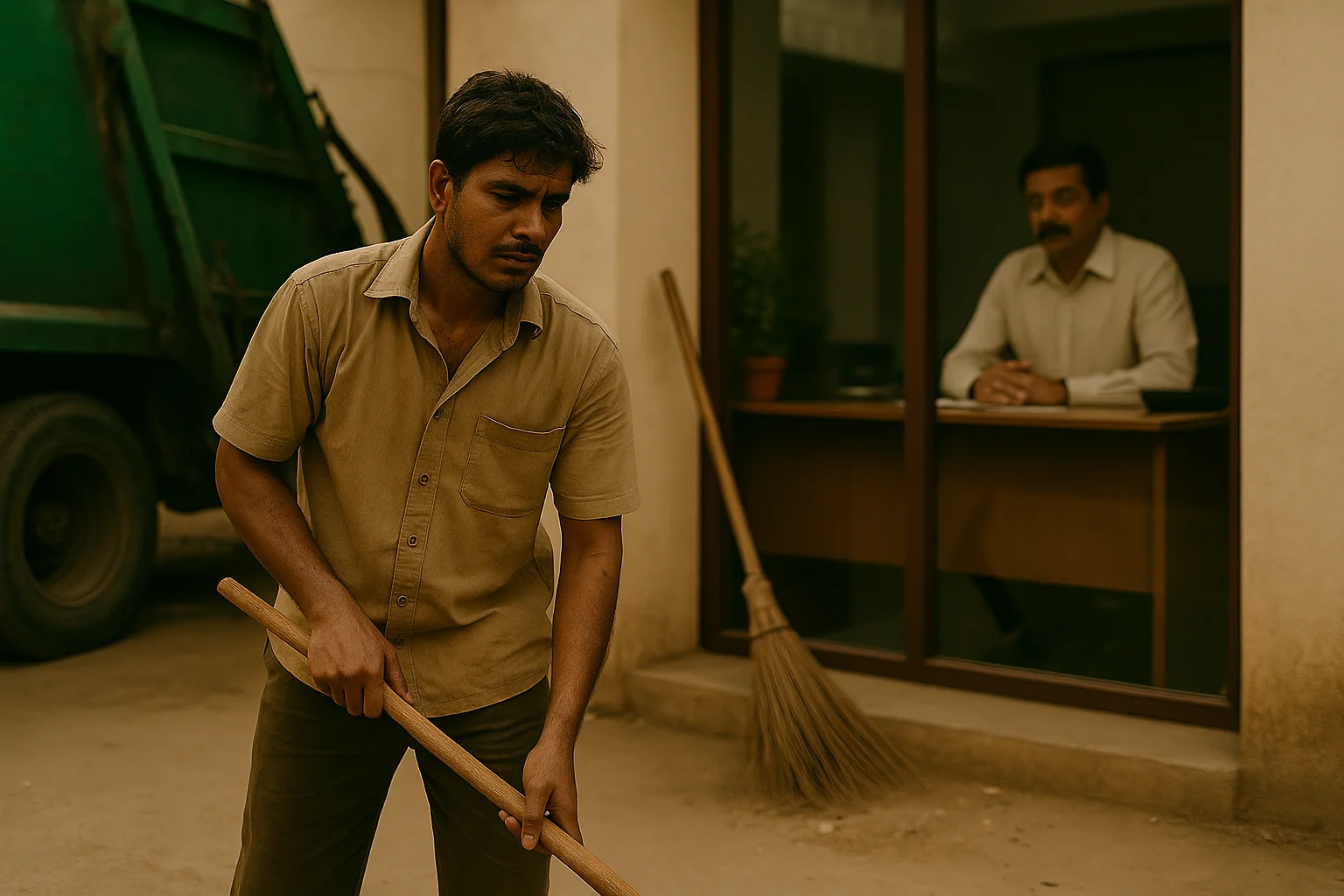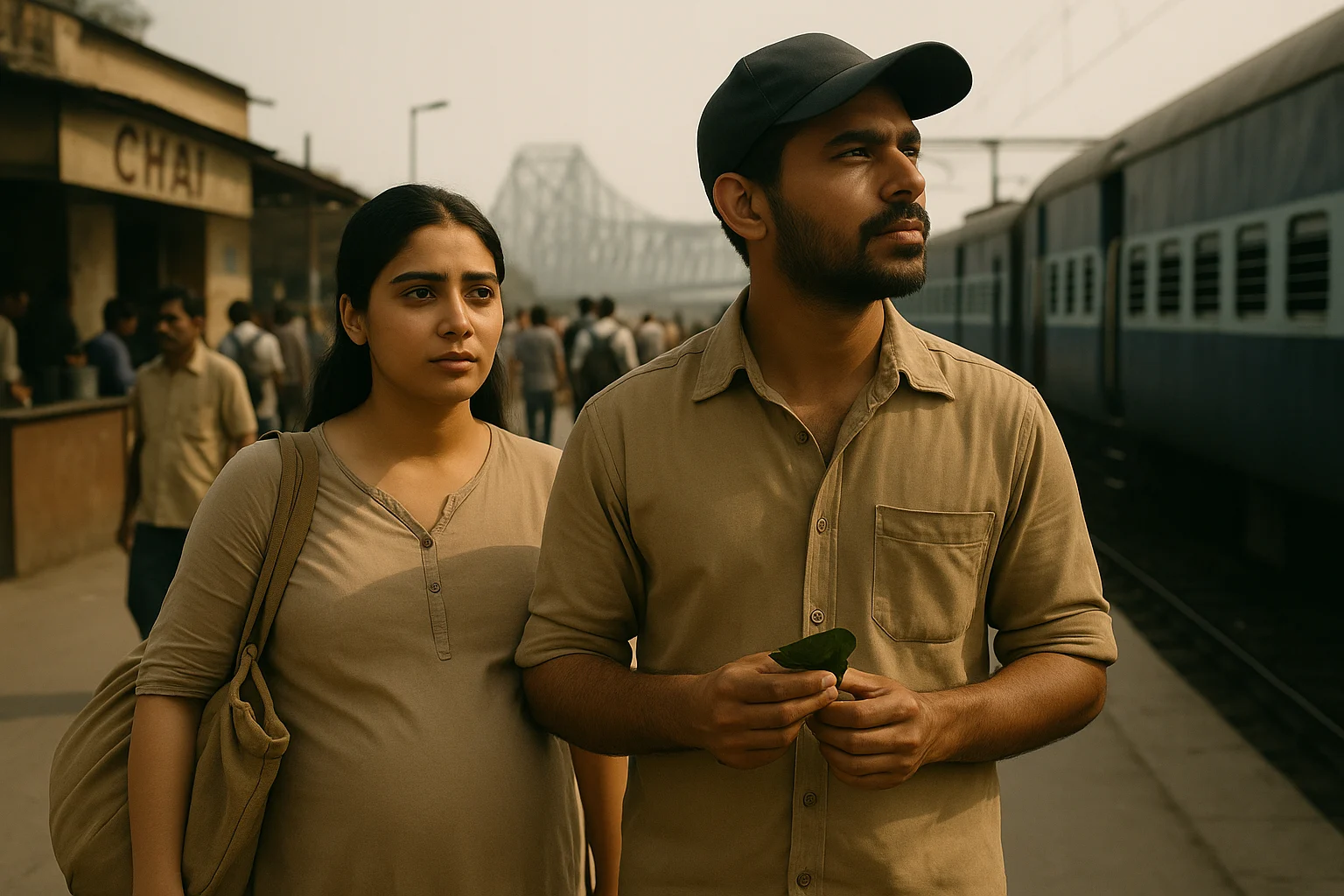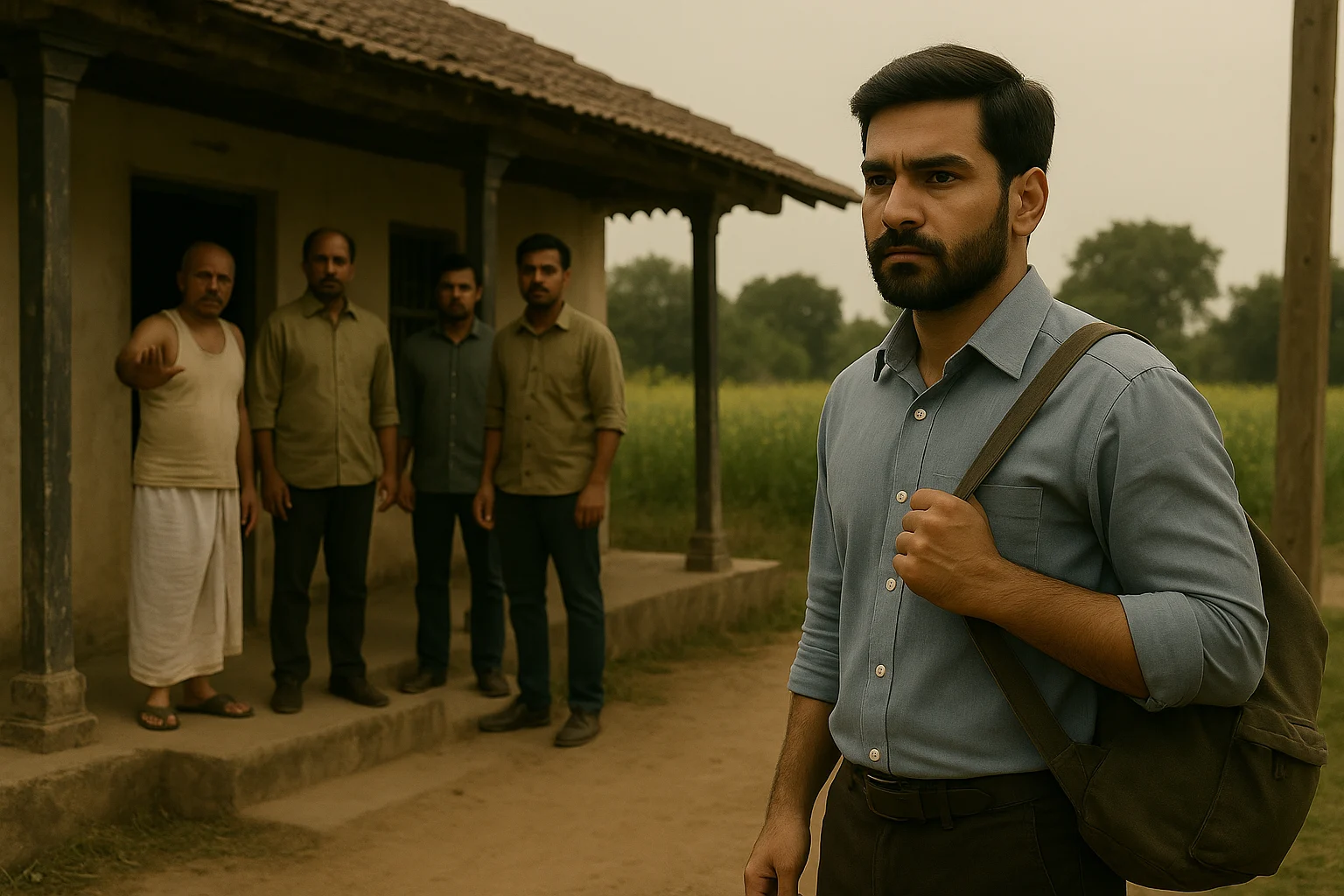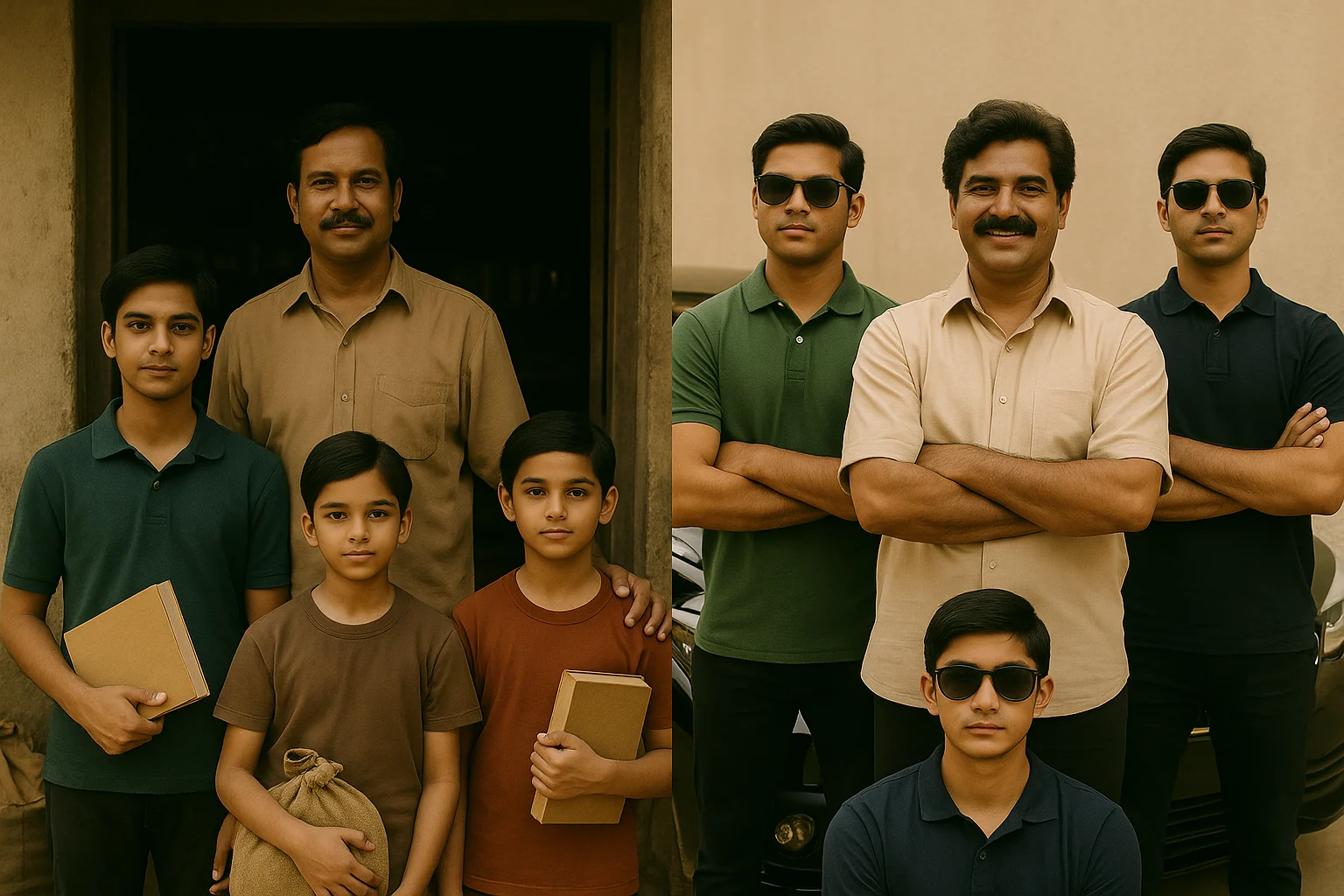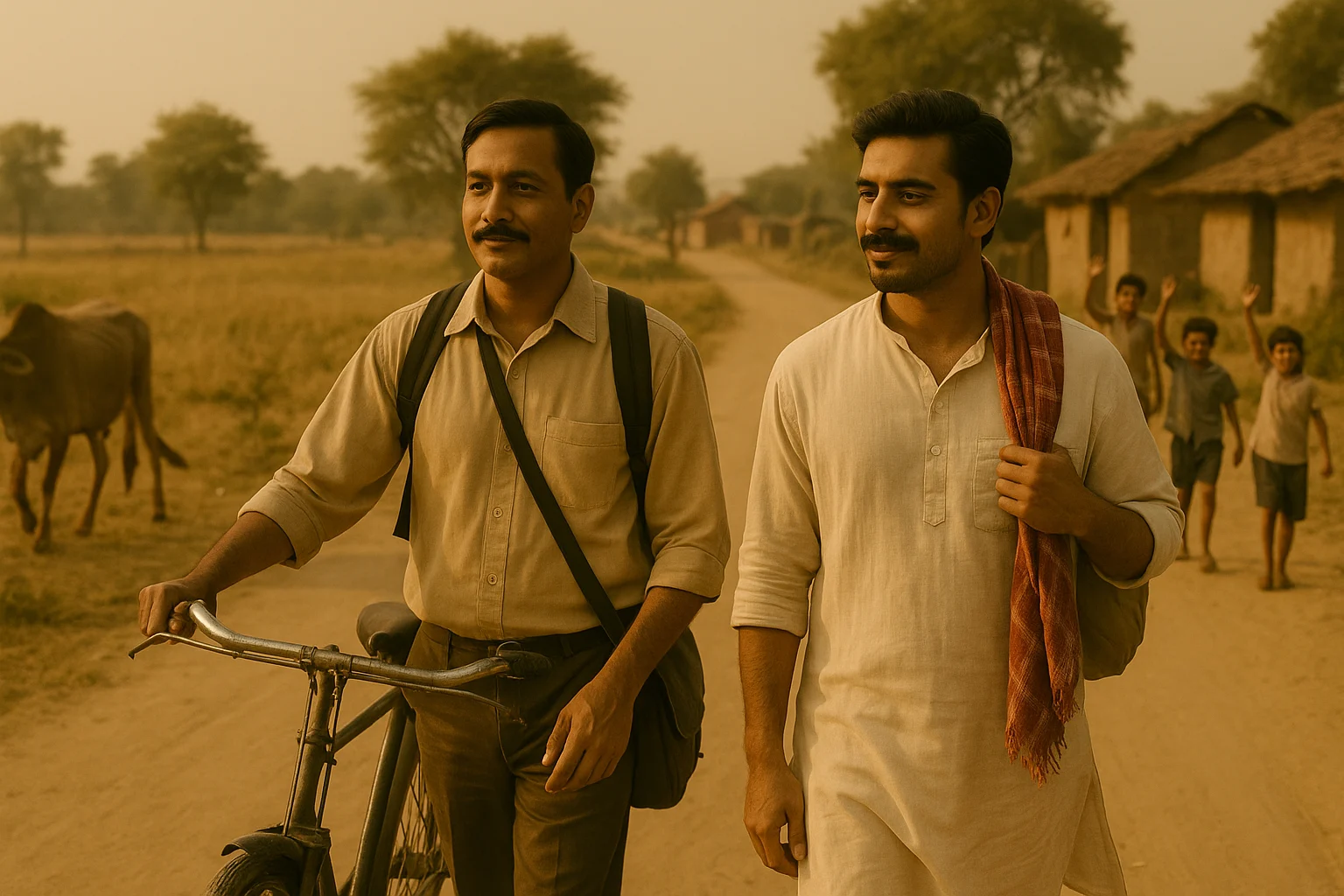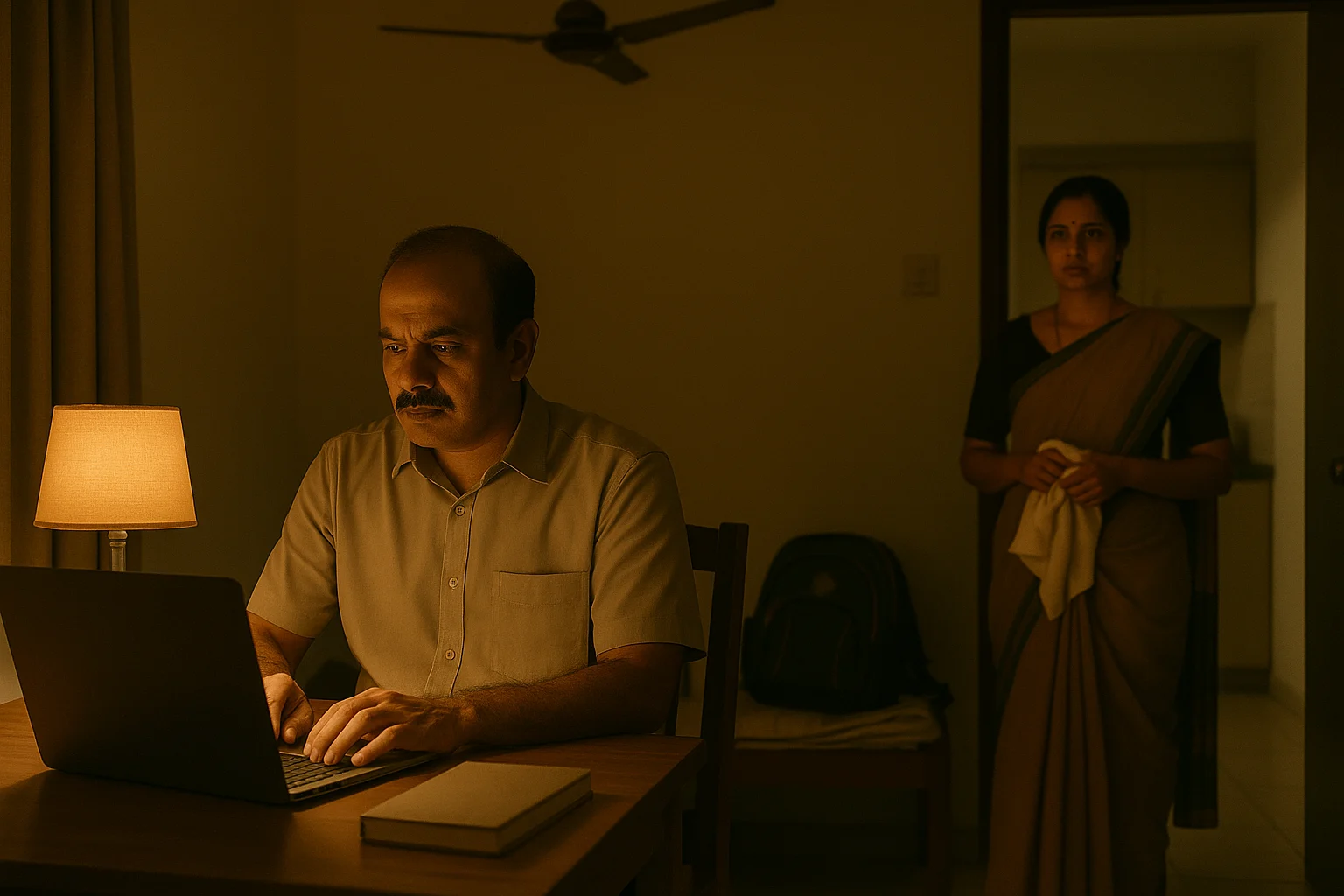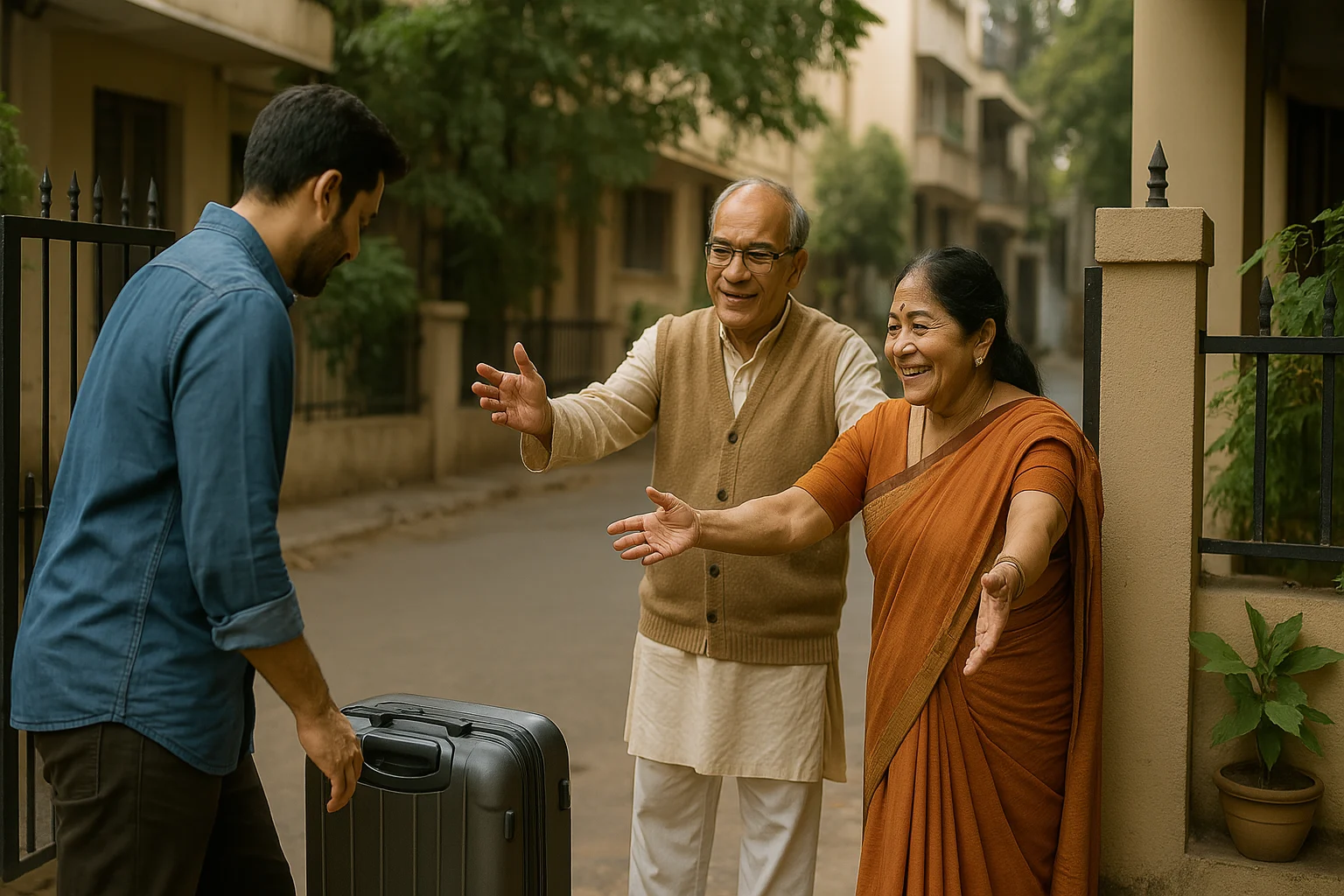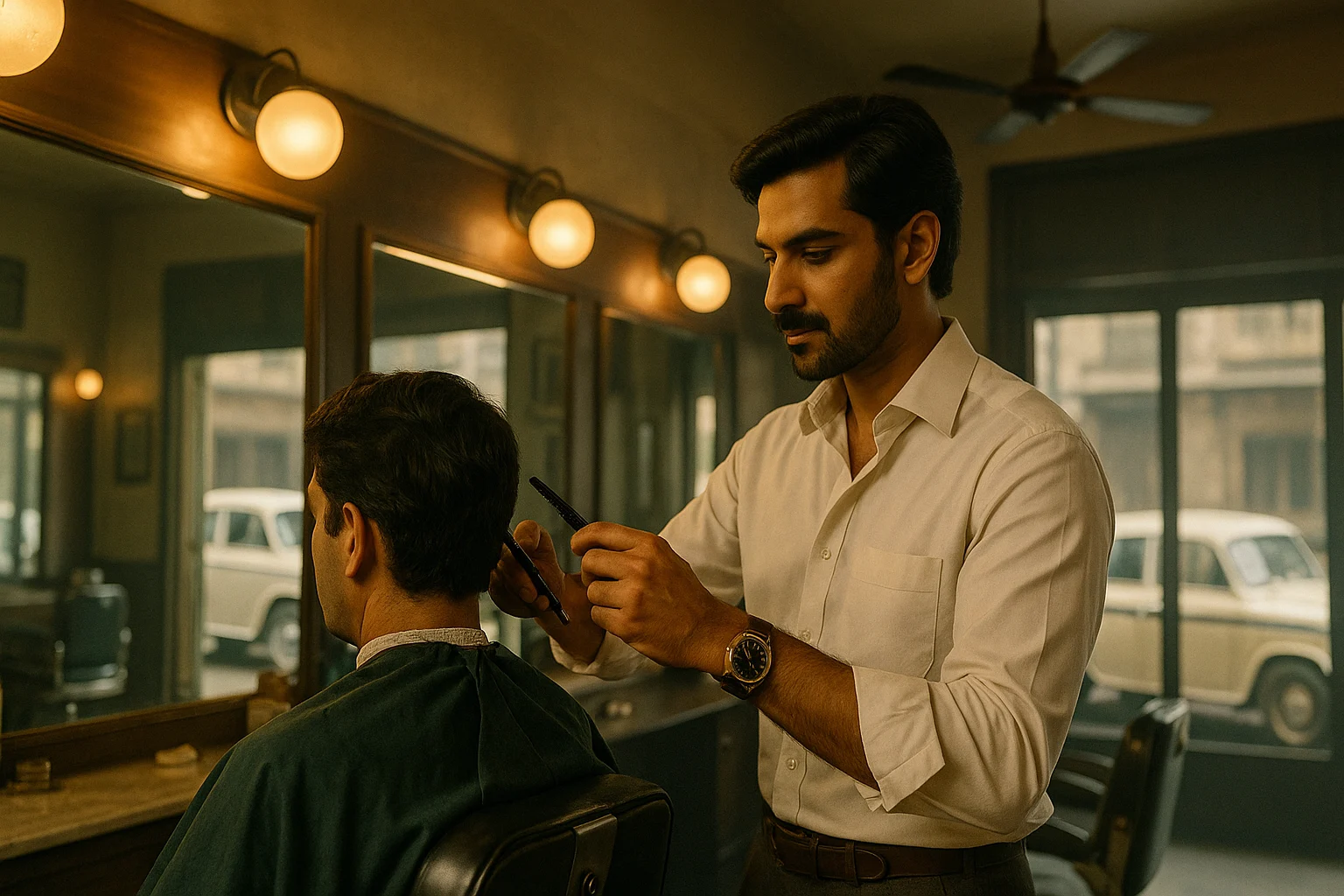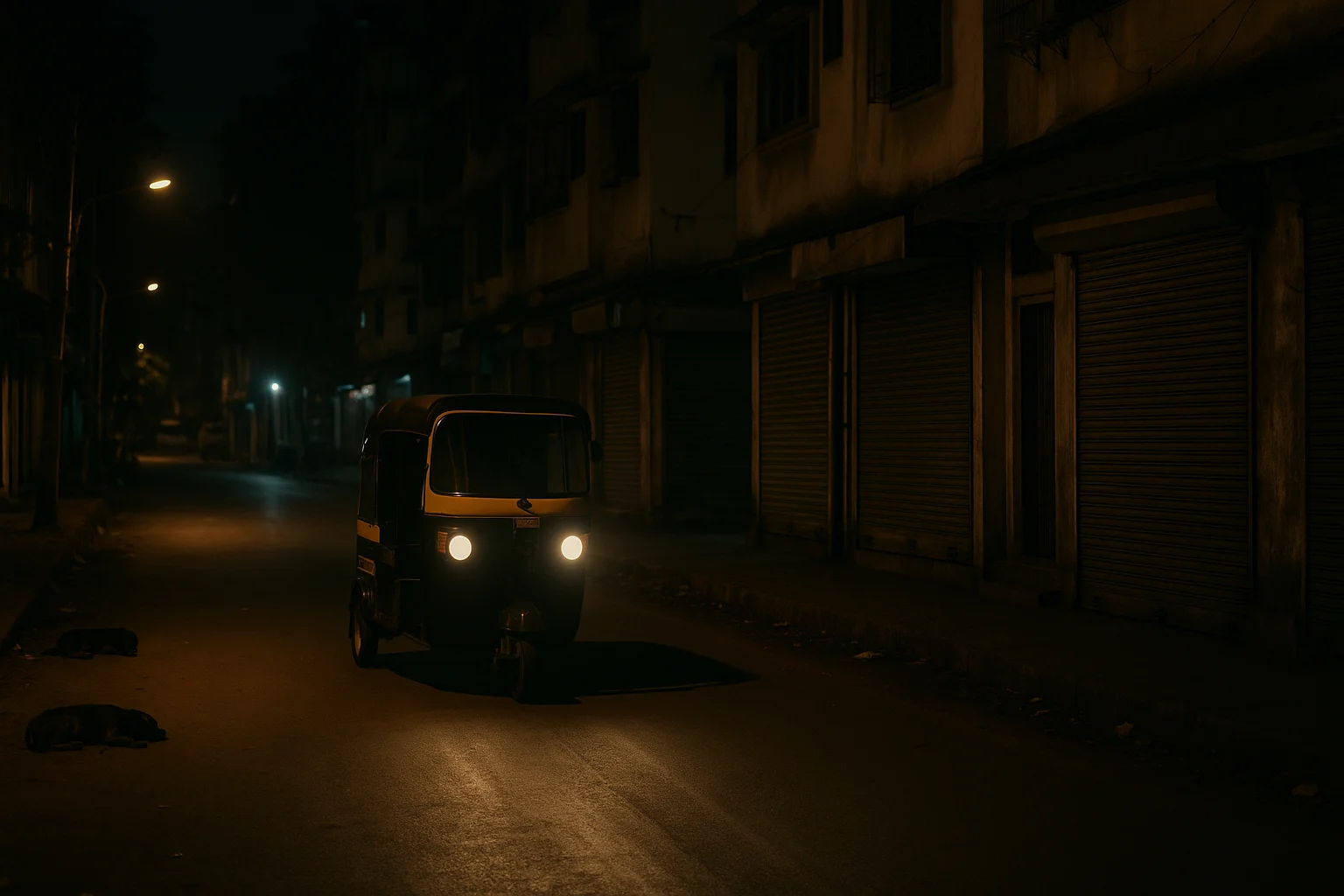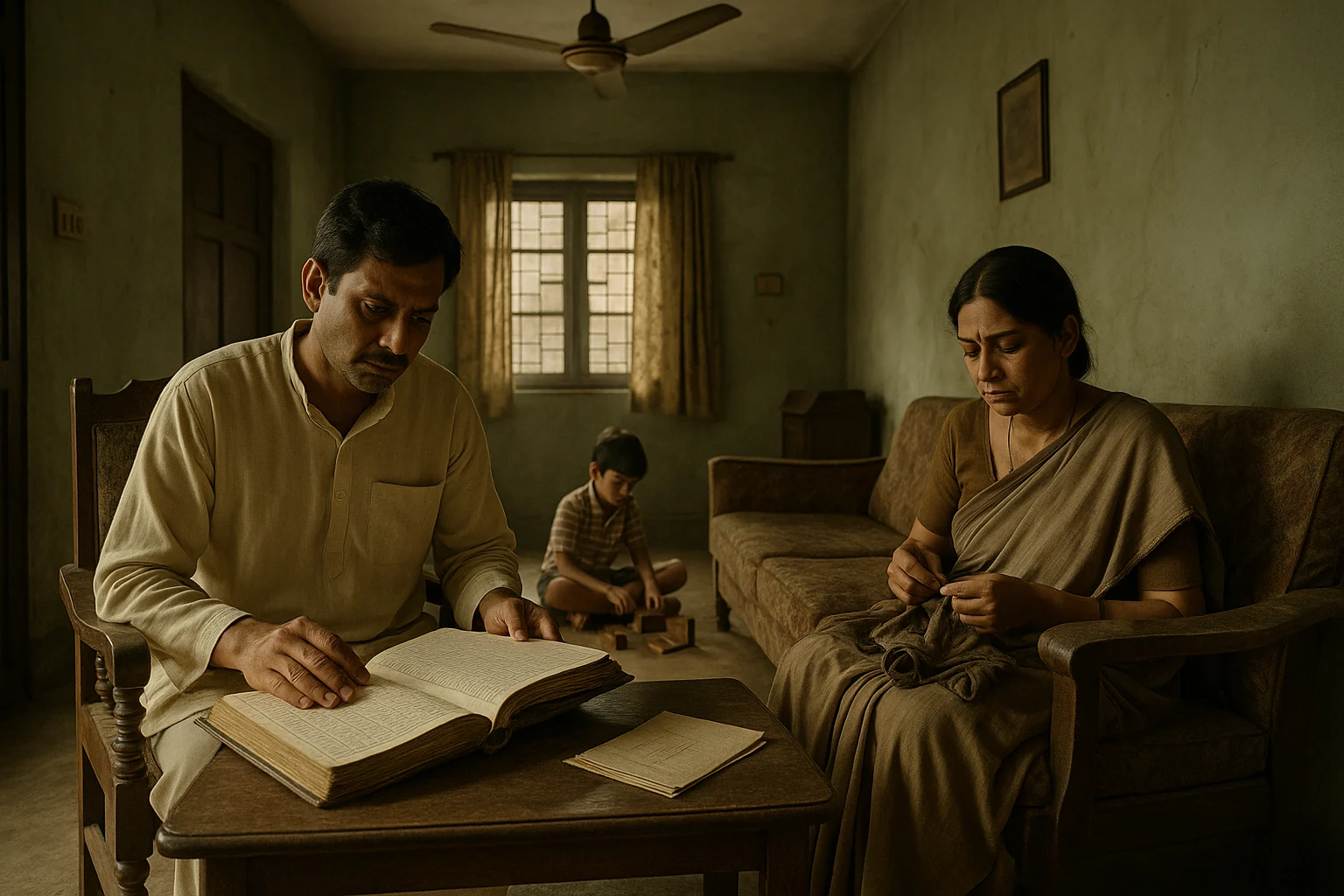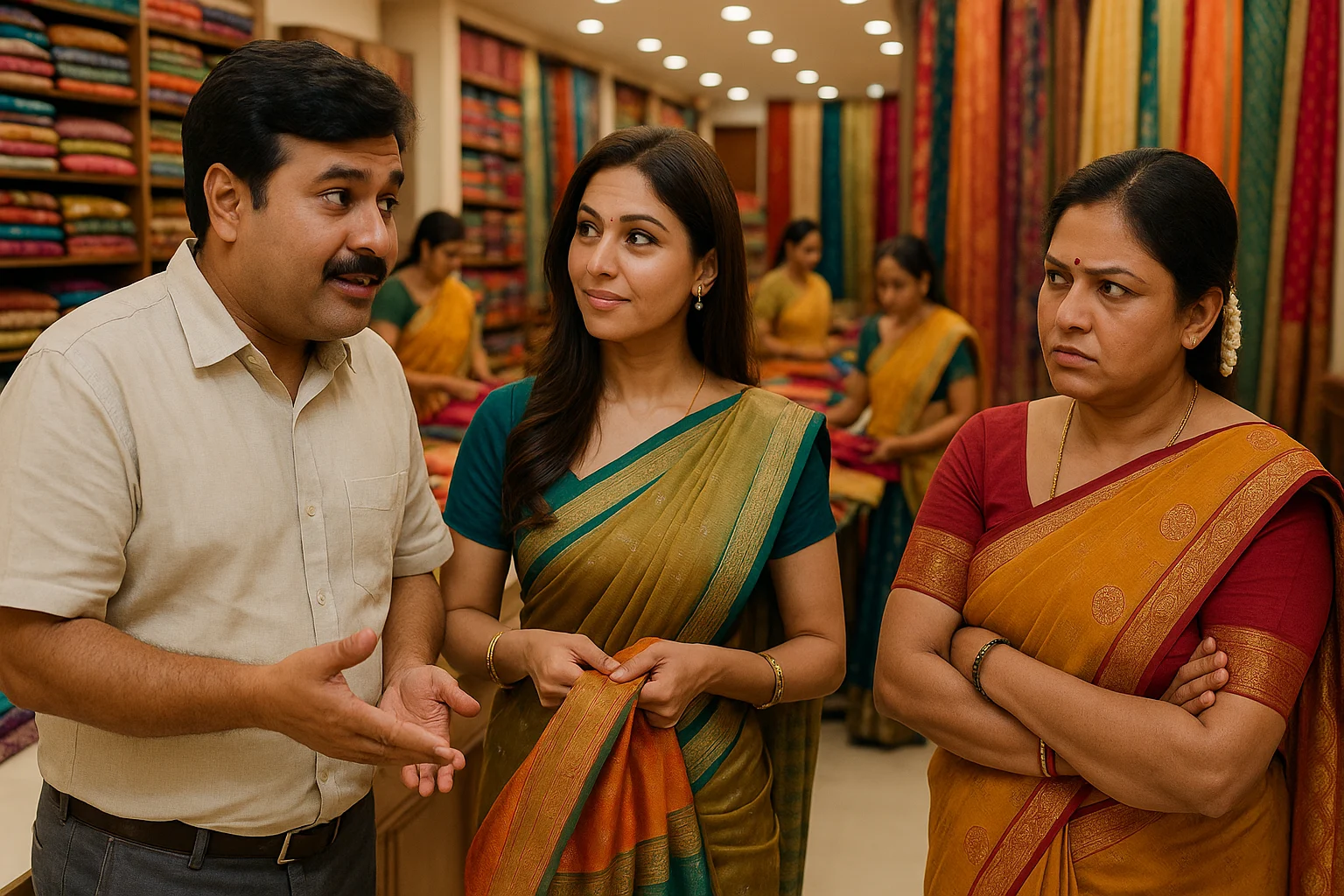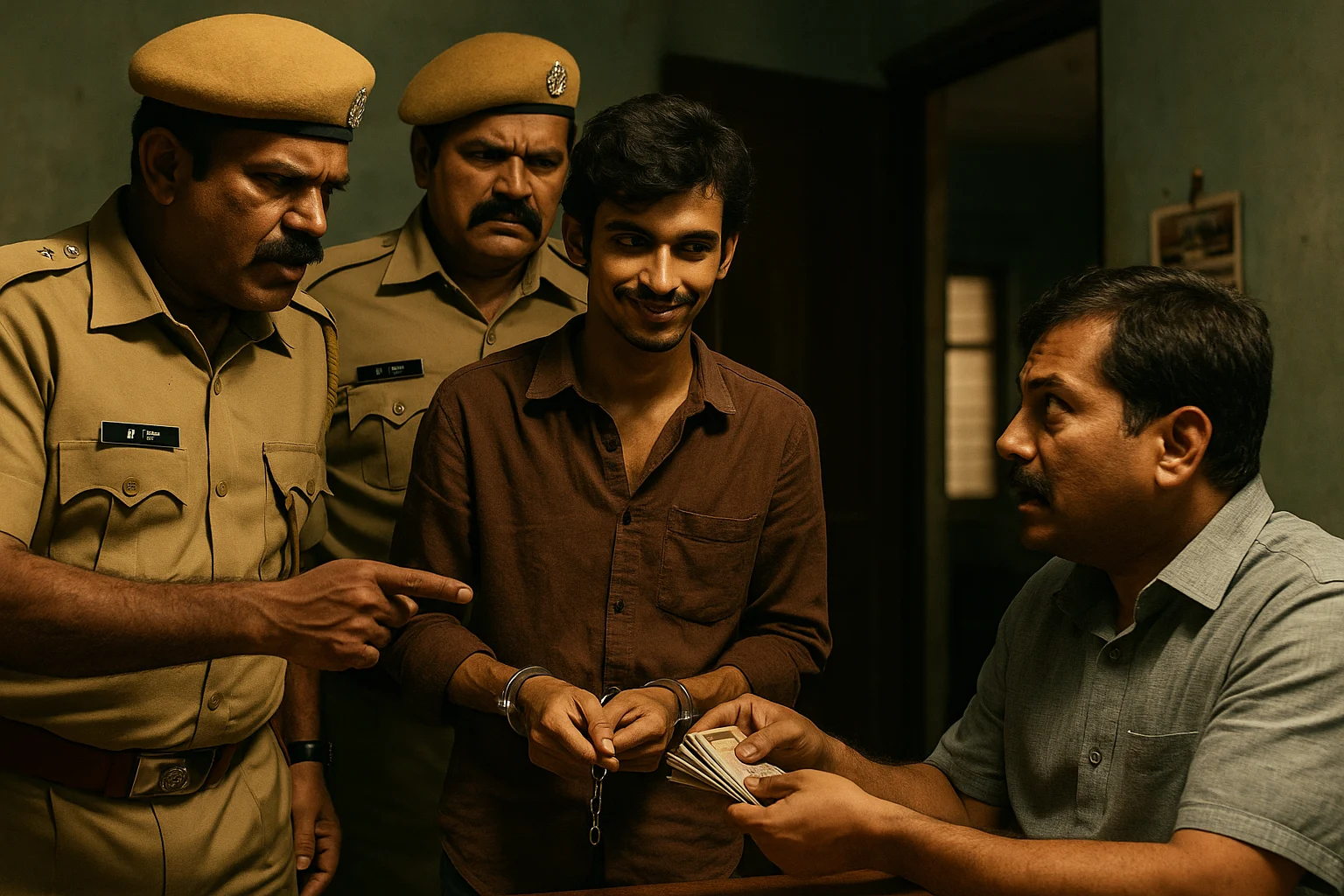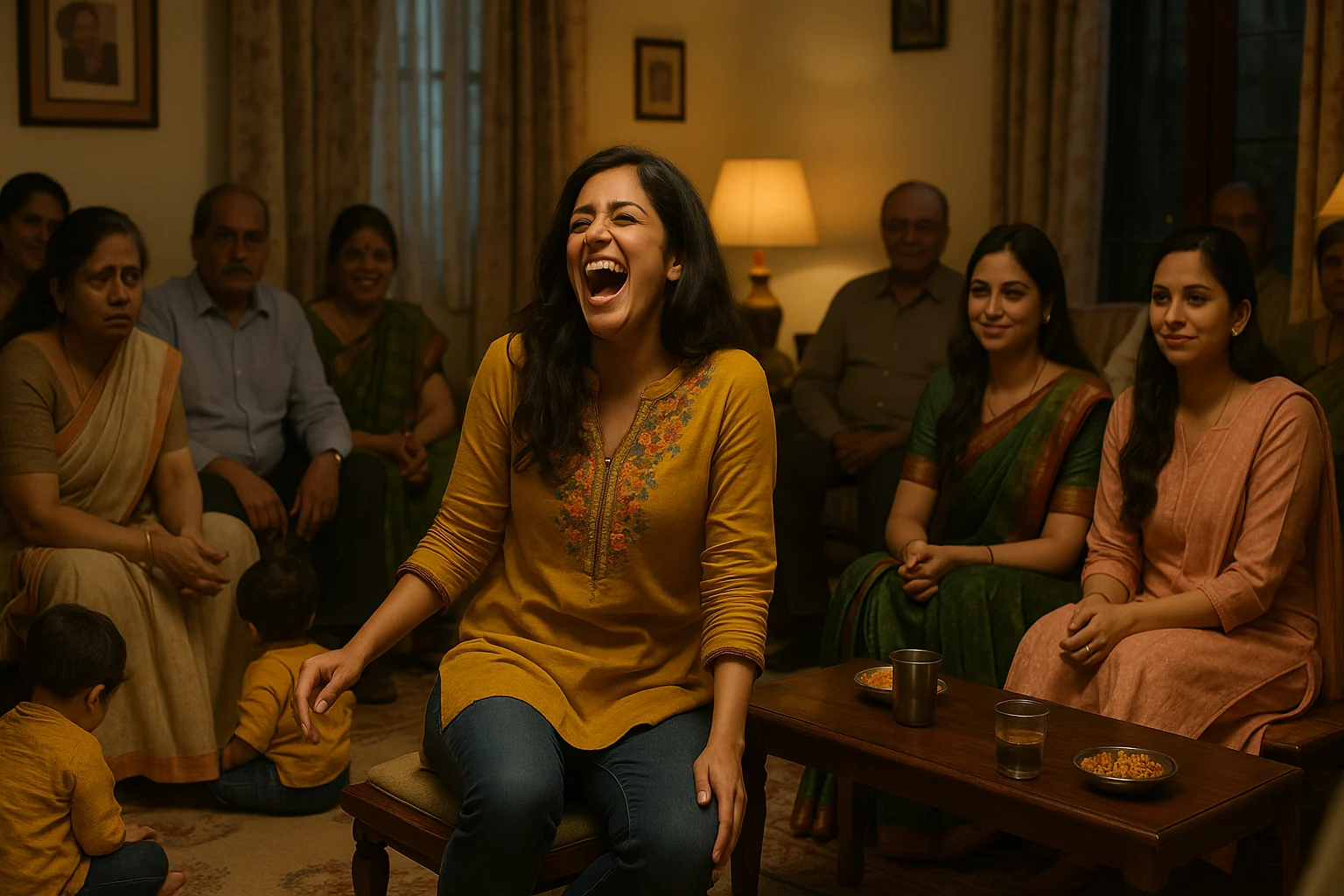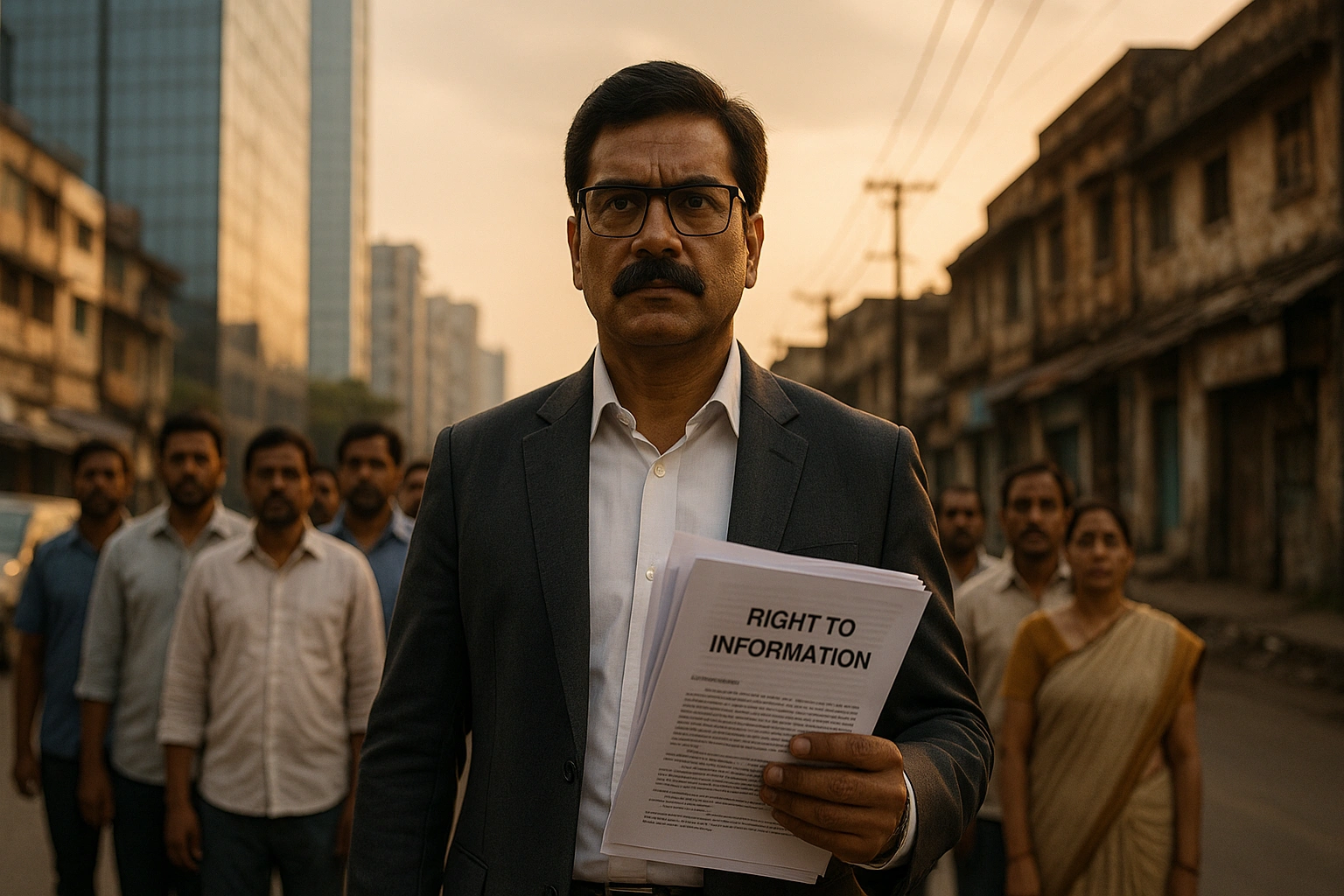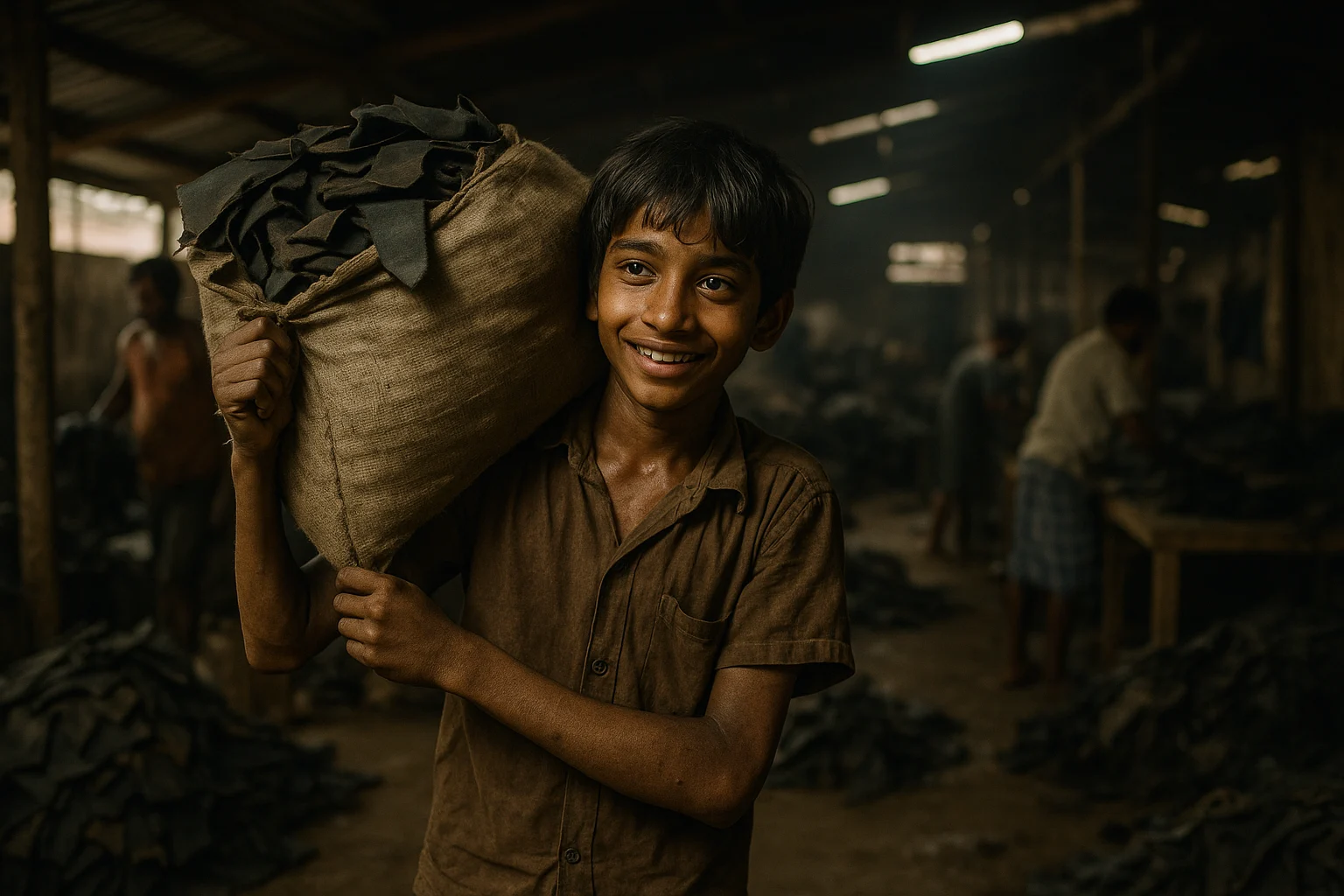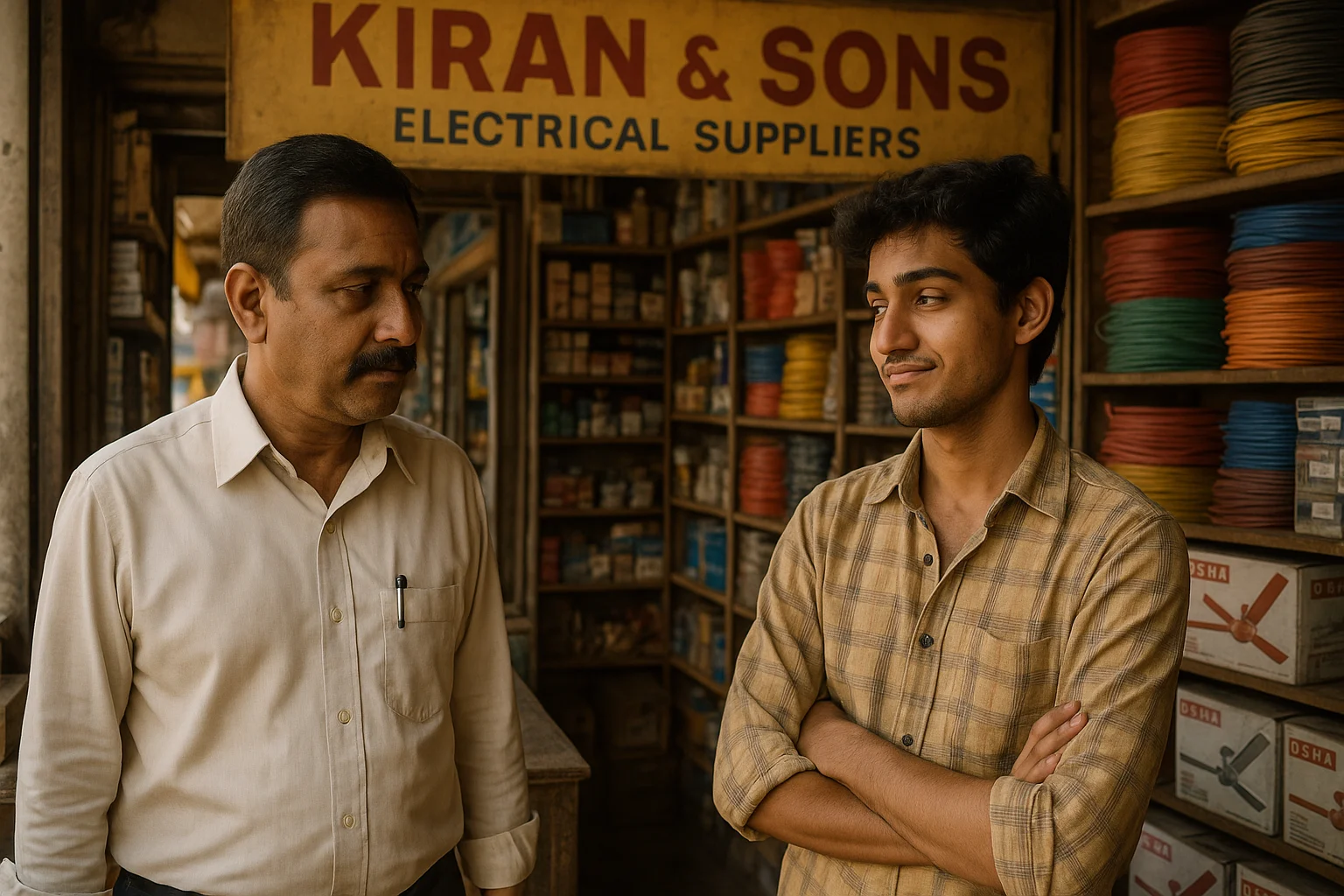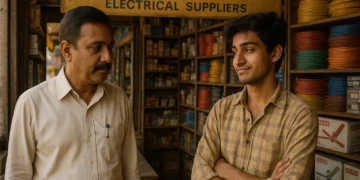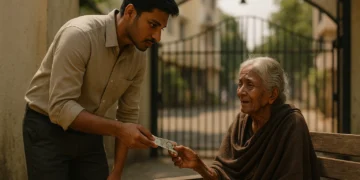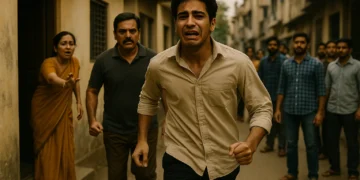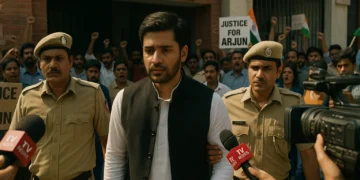Once celebrated in the bustling lanes of Pune as the most sought-after decorator, Ramakant was a man who turned mandaps into marvels and weddings into wonderlands. His creations were works of art—elegant drapes, grand floral entrances, chandeliers that looked borrowed from the stars. Yet behind his professional brilliance hid a personal life stitched with cracks.
With steady business and wealth at his feet, Ramakant found comfort in vices. Liquor flowed like water in his evenings, and unfamiliar female laughter often echoed through late-night calls. His wife, Radha, the silent pillar behind his early success, bore it all with the patience of a saint and the despair of a prisoner.
Suraj, their elder son, mirrored his father’s worst traits—except he wasn’t just sipping whiskey at parties. He was experimenting with everything the streets offered. Pills, powders, and potions. His body weakened with time, and his eyes lost their fire before they turned thirty-five.
Vijay, the younger one, inherited the anger, not the addiction. Always a fighter—first at school, later with cops—he found thrill in things that jingled in pockets and glittered in glass cases. From a cycle thief at thirteen to orchestrating petty robberies by twenty-five, his record was thick as a police file.
Meanwhile, Ramakant was aging, albeit reluctantly. His vanity remained intact, enough to woo and eventually marry Sushma, a 25-year-old girl from a village, half his age and thrice as cunning. The news didn’t just drop like a bomb—it detonated decades of suppressed grief in Radha’s heart.
“Shaadi? At this age? With her?” Radha murmured, almost laughing from the absurdity. “He could’ve adopted her instead.”

Sushma’s entry into the household was like scented poison—fragrant, deadly, and slow. Ramakant, now 57, seemed like a teenager in her presence. The house that once echoed with Radha’s temple bells now reverberated with Sushma’s demands for gold chains and shopping trips.
Then came the stroke.
The mighty decorator was reduced to a whispering wreck. A stick supported him, but it was Sushma who he leaned on, emotionally and otherwise. While Radha fed him khichdi with trembling fingers, Sushma read him property documents in sweetened tones.

Rumors swirled that Ramakant was planning to gift her everything—every chandelier, every stitch of cloth, every square foot of land he owned. The only property untouched was the old family house where Radha still lit the diya every morning, hoping her gods hadn’t resigned from her case.
One foggy morning, the godown—Ramakant’s second home, his storage sanctuary for all decoration materials—became his final resting place.
He was found lying flat between rolled carpets and broken stage pillars.
Dead.
No signs of struggle. No noise the previous night. Just silence.
Radha wept. Suraj drank. Vijay disappeared.
But Sushma screamed. And then, she called the police.
The Investigation

Inspector Dhumal was no Sherlock, but he had something more reliable—experience and a gut instinct sharpened by years of domestic dramas. And this one smelled rotten.
A few days later, CCTV footage from a nearby ration shop showed Vijay lurking near the godown the night of the incident. Forensics found a small, thin wire with traces of strangulation.
It didn’t take long.
Vijay was arrested. The court trial was brief, but tense. The judge declared: 14 years of rigorous imprisonment.
Radha fainted outside the courtroom. Suraj had stopped attending the hearings—too drunk to care. Sushma, in all-white cotton, cried prettily on news cameras.
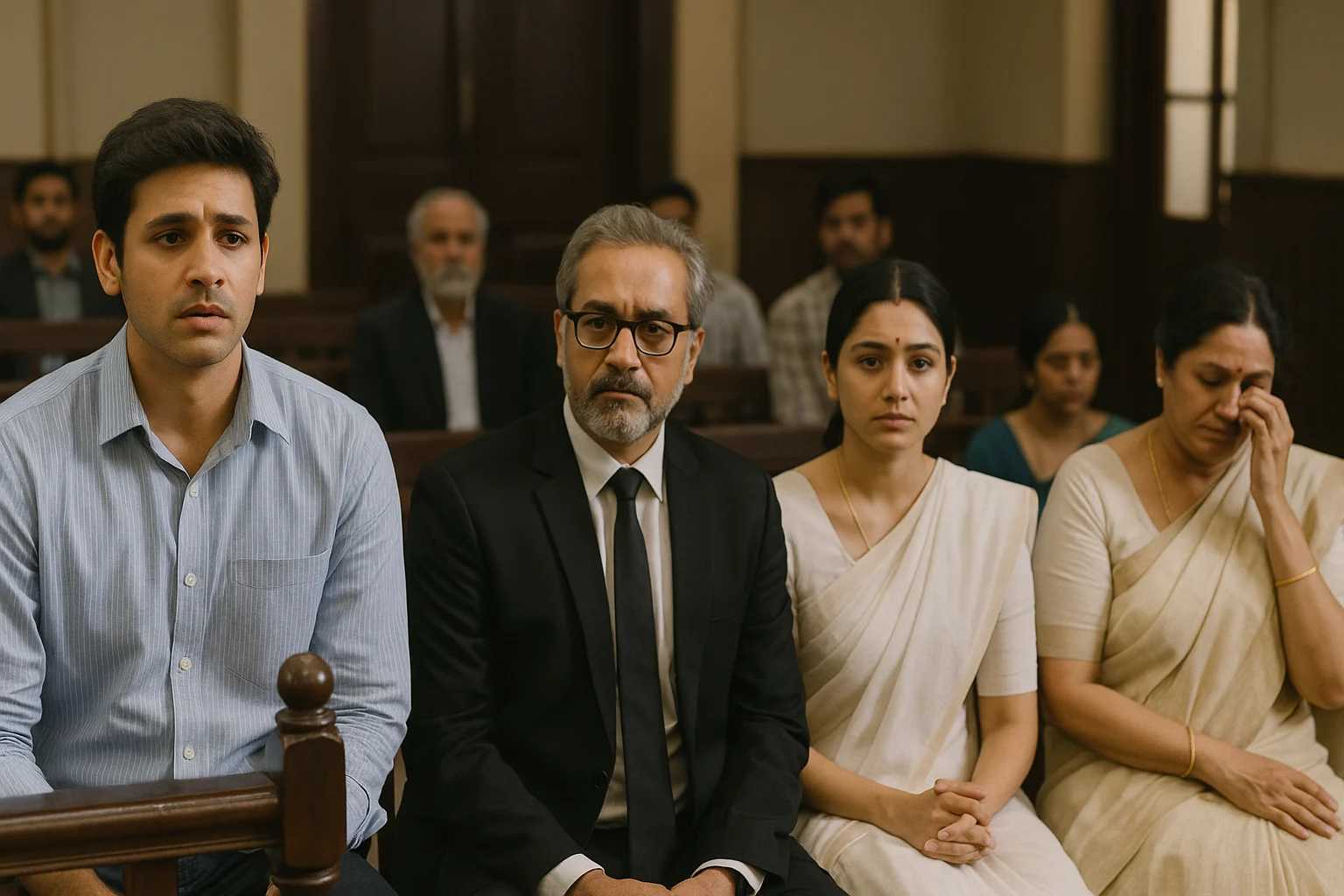
The Aftermath
A year passed.
Suraj died. A lethal cocktail of alcohol and pills robbed the last beat from his overworked heart.
His widow, barely 30, stood alone with two children. They were too young to understand death but old enough to notice fewer school lunches.
Vijay’s wife stopped waiting for conjugal visits. She started working at a grocery store, often lifting sacks heavier than her fate. Her son—barely seven—once asked if jail had a “parents’ day.”
Radha? She was still alive.
Though she looked 80, she was barely 62. Every wrinkle told a story. She now stayed in that one house Ramakant forgot to gift away—a crumbling building that leaked secrets with the monsoons.
She cooked her own meals, stitched her own blouse, and counted every rupee before buying Haldi.
The only thing left of Ramakant, apart from some photos and unpaid taxes, was the decoration shop’s rusting signboard.
Sushma’s New Life

She mourned long enough to look convincing.
Then one fine day, she married again.
To someone she once called “bhaiya” while pretending innocence in front of Ramakant. Her new husband was young, fit, and jobless—a combination she always found attractive.
Together, they took over Ramakant’s assets, sold off the warehouses, and rebranded the business as “Sushma Celebrations”—complete with neon signs and luxury event planning packages.
In interviews, she called herself a “self-made woman.”
A Visit to the Old House

One day, out of curiosity (or perhaps guilt wrapped in a shopping bag), Sushma visited Radha.
She wore sunglasses. Radha wore humility.
“Maaji… just came to check on you.”
Radha stared at her, her eyes dry now. “Don’t worry about me, beti. I have peace. You have properties.”
There was silence.
Sushma smiled awkwardly. “Okay, take care.”
“Always have,” Radha said and shut the door gently.
Moral of the Story:
Wealth built on betrayal invites ruin. In the end, what remains is not what we own—but what we gave, forgave, and endured.
Receive Stories and Articles in your Inbox!
We won’t send any promotional or spam emails.
